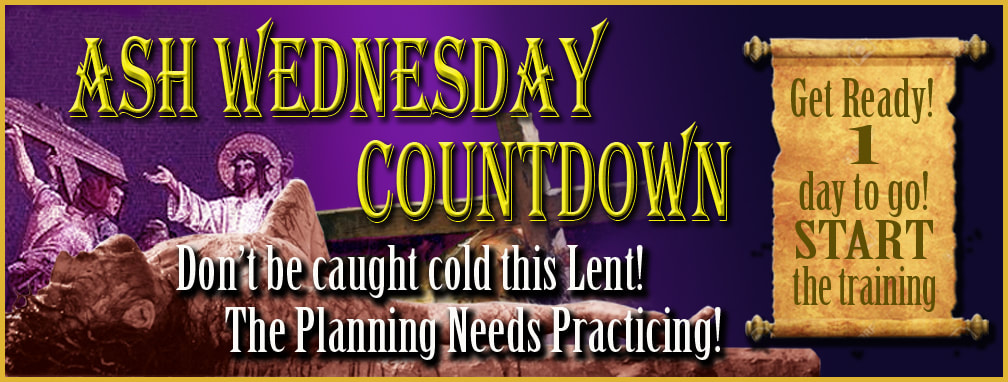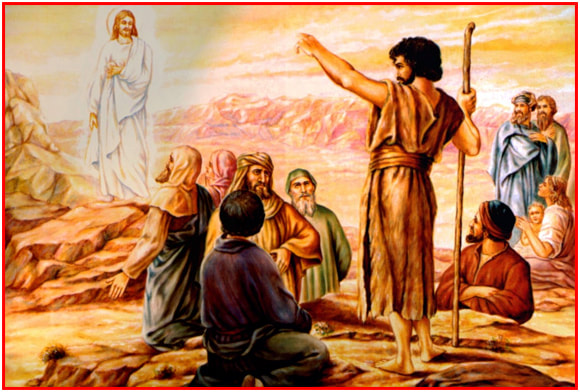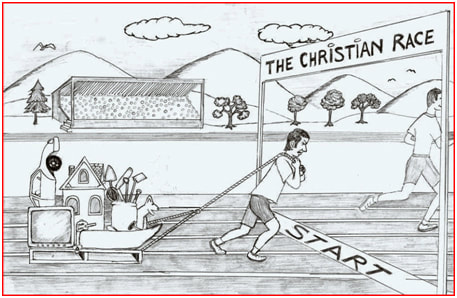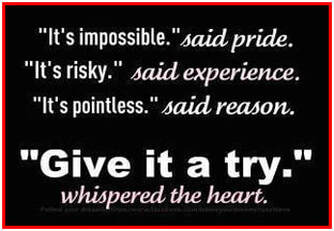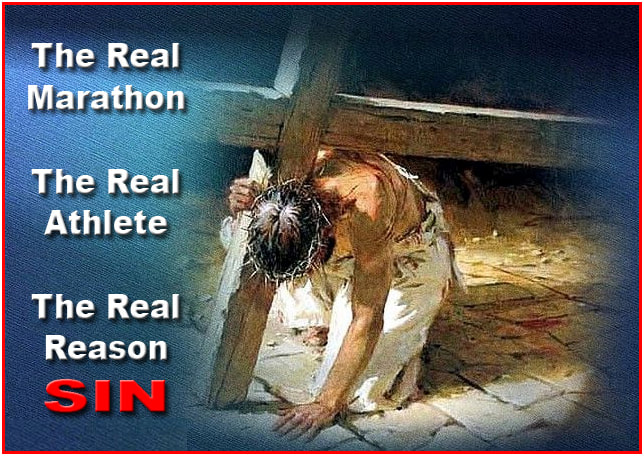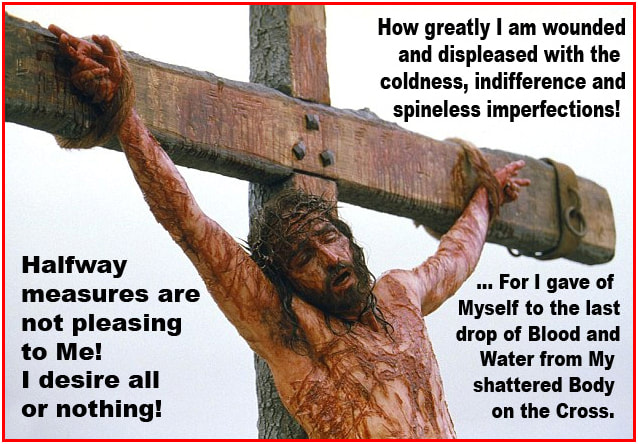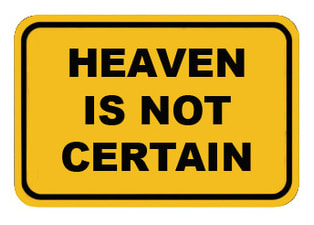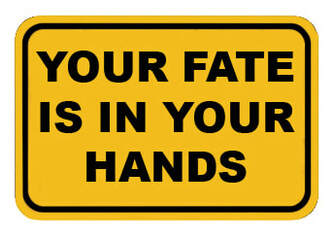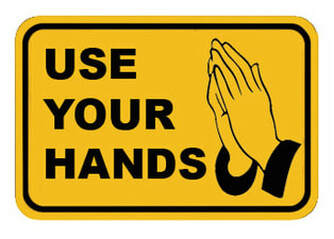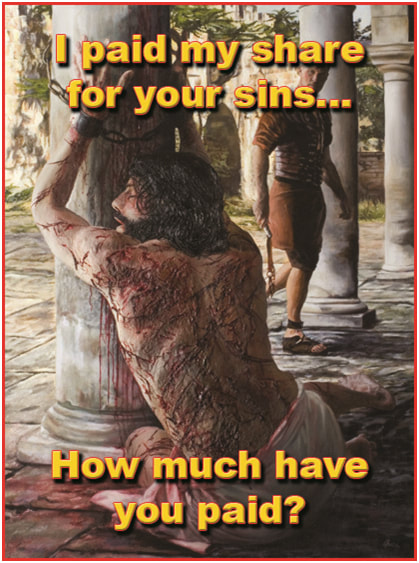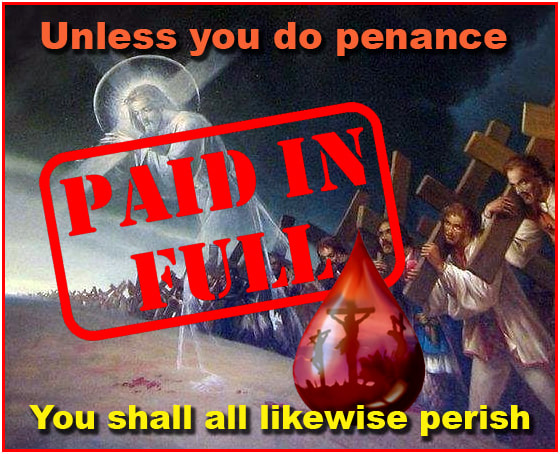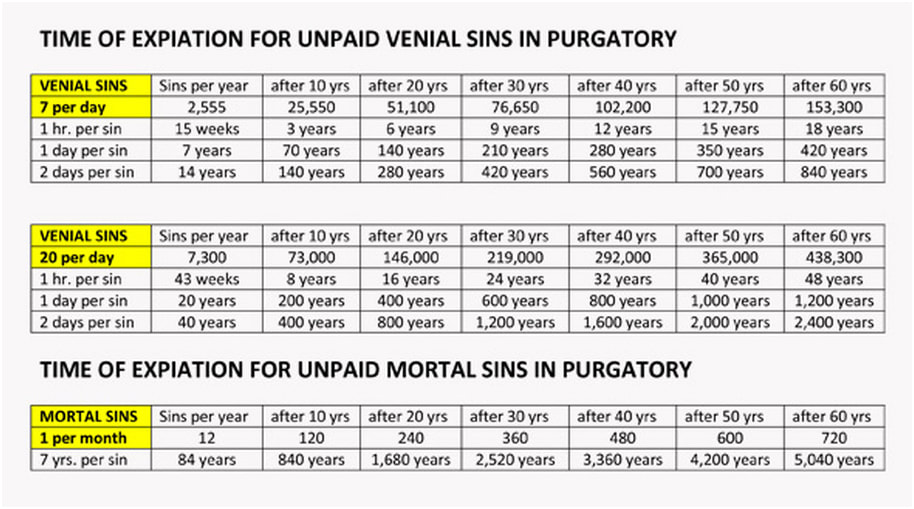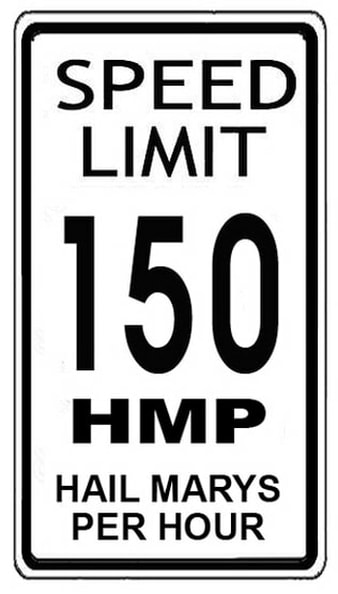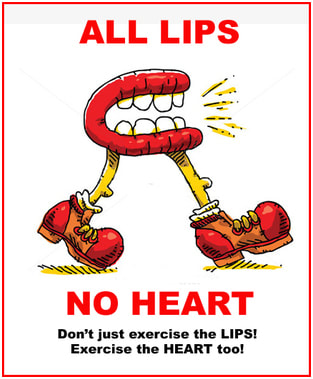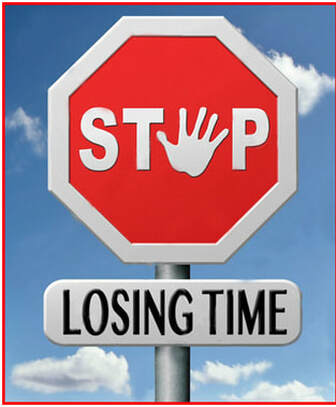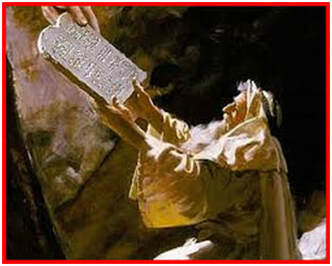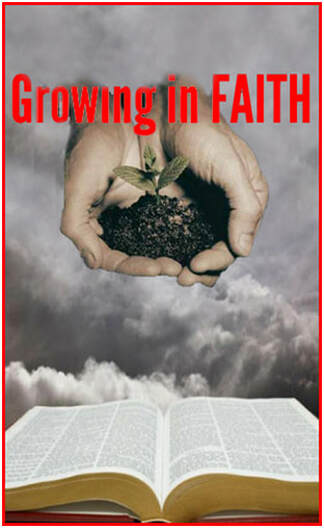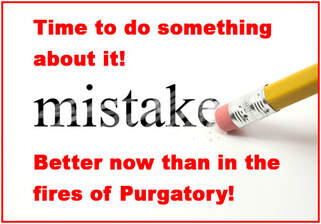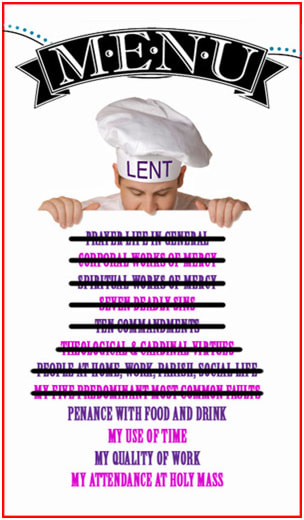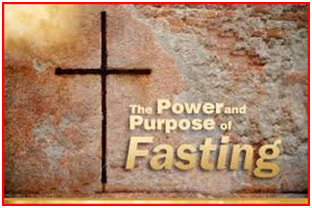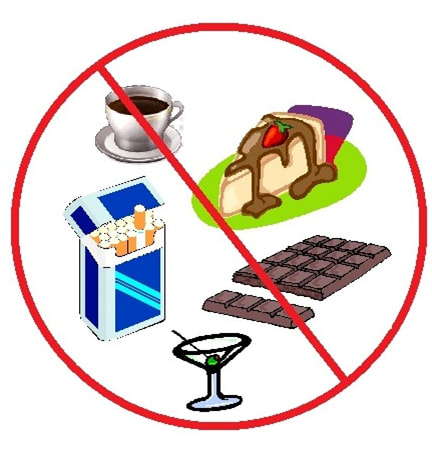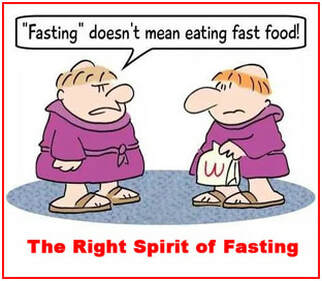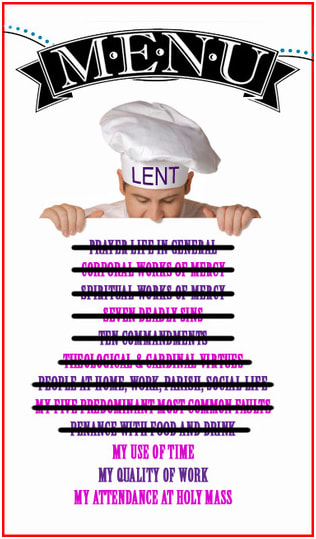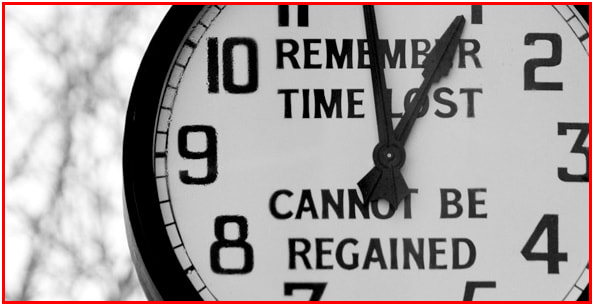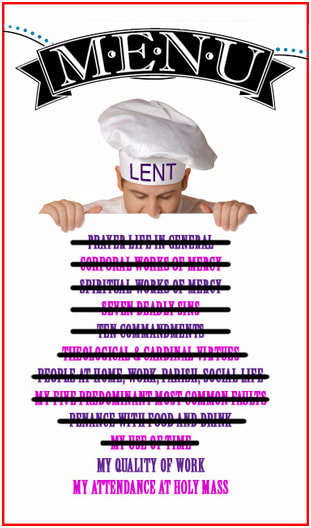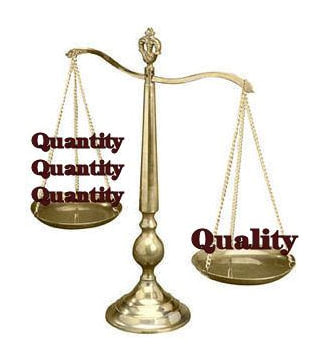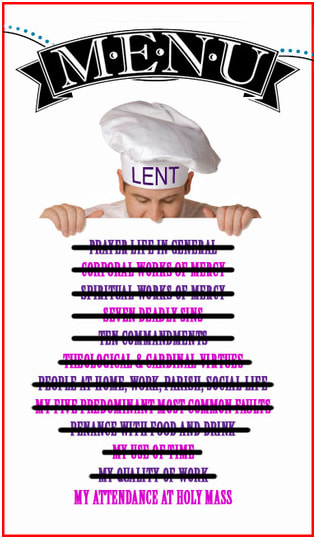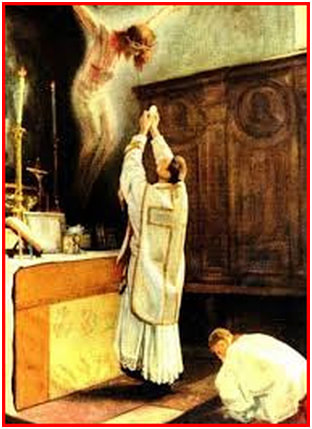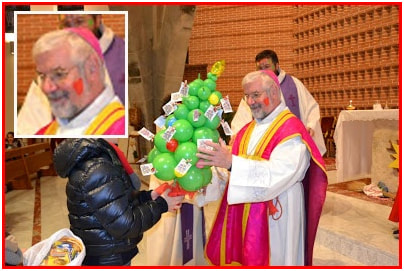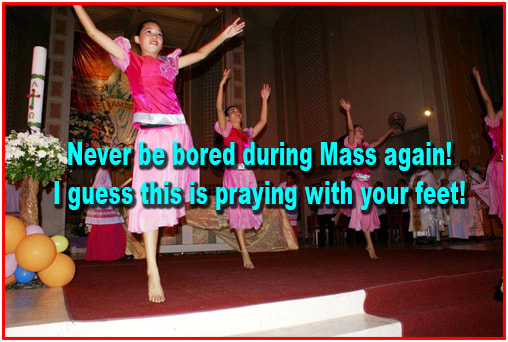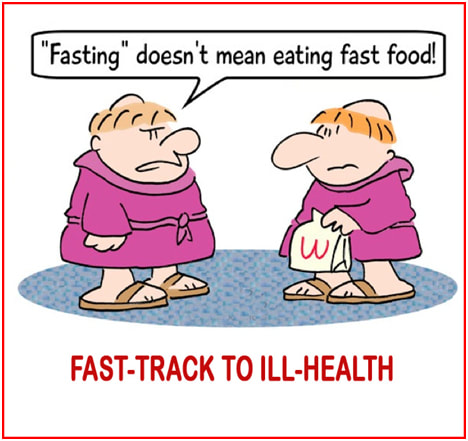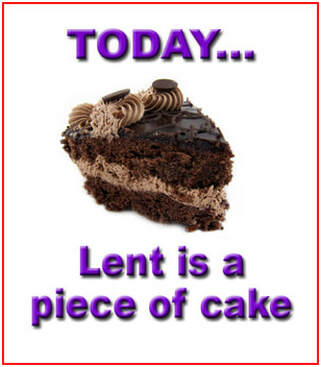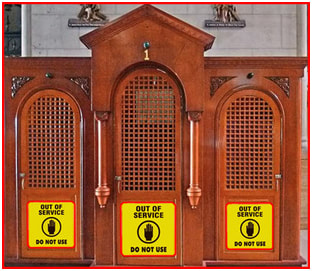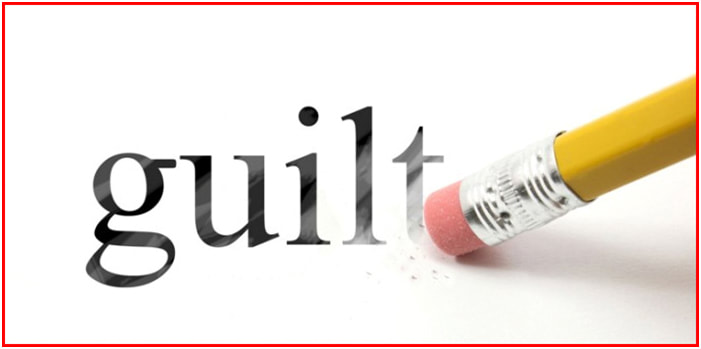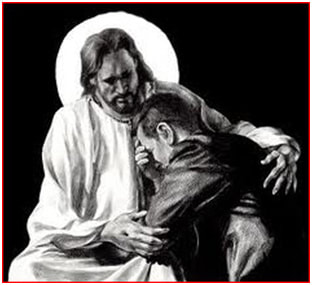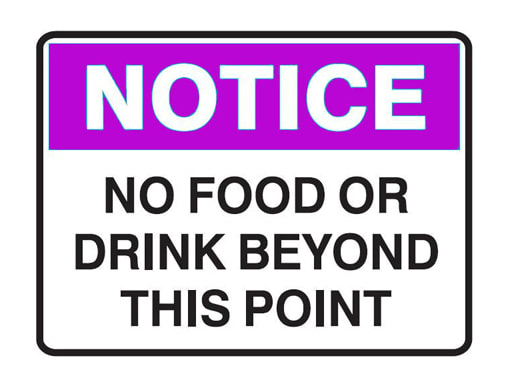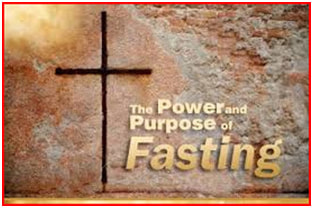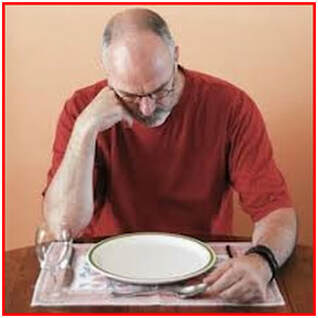| Devotion to Our Lady |
|
- Homepage
-
Daily Thoughts
- 2023 October Daily Thoughts
- Daily Thoughts Lent 2020
- Daily Thoughts for Advent 2019
- Daily Thoughts for October 2019
- Daily Thoughts for September 2019
- Daily Thoughts for August 2019
- Daily Thoughts for July
- Daily Thoughts for June
- Daily Thoughts for Easter 2019
- Daily Thoughts for Lent 2019
- Daily Thoughts for Christmas
- Daily Thoughts Easter 2022
- Sacred Heart
- Holy Ghost
-
Spiritual Life
- Holy Mass Explained
- First Friday Devotions
- First Saturday Devotions
- The Mercy of God
- Vocations
- The Path Everyone Must Walk >
- Gift of Failure
- Halloween or Hell-O-Ween?
- Ignatian Spiritual Exercises >
- Meditation is Soul-Saving
- Spiritual Communion
- Miraculous Medal
- Enrollment in Miraculous Medal
- St. Benedict Medal
- Holy Water
- Advice on Prayer
- Your Daily Mary
-
Prayers
- September Devotions
- Seven Sorrows of Our Lady
-
Novenas
>
- NV-Help of Christians
- NV-Nativity of Our Lady
- NV-Seven Sorrows
- NV- Sorrowful Heart
- NV-Pope St Pius X
- NV-La Salette
- NV-St Michael Archangel
- NV-Immaculate Heart
- NV-Assumption
- NV-Novena for Fathers
- NV-Novena for Your Mother
- NV-St Raphael Archangel
- NV-Souls in Purgatory
- NV-All Saints Day
- NV-Christ the King
- NV-Divine Motherhood
- NV-Guardian Angels
- NV-Rosary
- NV-Mirac Med
- NV- Imm Conc
- NV - Guadalupe
- NV - Nativity of Jesus
- NV-Epiphany
- NV-OL Good Success
- NV-Lourdes
- NV-St Patrick
- NV-St Joseph
- NV-Annunciation
- NV-St Louis de Montfort
- NV-OL Good Counsel
- NV-Last Supper
- NV-Passion
- NV-Pentecost
- NV-Ascension
- NV-Sacred Heart
- NV-Sacred Heart & Perpetual Help
- NV-Corpus Christi
- NV-OL of Perpetual Help
- NV-Queenship BVM
- NV-OL of Mount Carmel
- NV-St Mary Magdalen
- NV- Im Hrt
- August Devotions to IHM
- Immaculate Heart of Mary
- Litany of Dependence
- Prayers to St Mary Magdalen
- Prayers in Times of Sickness Disease & Danger
- Holy Souls in Purgatory
- Meditations on the Litany of Our Lady
- Special Feast Days
- Prayers to Mary (Mon-Sun)
- Litanies to Our Lady >
- Various & Special Needs
- Our Lady of the Rosary
- Our Lady of Mt. Carmel
- Our Lady of Perpetual Help
- Our Lady of Guadalupe
- Other titles of Our Lady
-
Rosary
- Downloads
- Consecration
- Easter Season
-
Holy Week
- Last Seven Words of Jesus >
- Characters of Passion >
- The Last Days of Christ
- Before Palm Sunday
- Palm Sunday
- Monday in Holy Week
- Tuesday in Holy Week
- Wednesday in Holy Week
- Holy Thursday (Last Supper)
- Holy Thursday (Agony & Arrest)
- Night Vigil with Christ
- Good Friday (Pilate & Herod)
- Good Friday (Way of Cross & Crucifixion)
- Saturday in Holy Week
-
Lent
- Ideas for Lent
- Daily Lenten Planner
- Daily Lenten Liturgy
- From Cold to Hot
- Lent with Aquinas
- Lent with Dom Gueranger
- Virtues for Lent
- History of Penance
- How Expensive is Sin?
- Confession of Sins
- Letter to Friends of the Cross
- Sermons for Lent
- Stations of the Cross >
- Lenten Prayers
- 7 Penitential Psalms
- Lenten Psalms SUN
- Lenten Psalms MON
- Lenten Psalms TUE
- Lenten Psalms WED
- Lenten Psalms THU
- Lenten Psalms FRI
- Lenten Psalms SAT
- Lenten Laughs
- Septuagesima
-
Christmas
- Epiphany Explained
- Suggestions for Christmas
- Food For Thought
- Christmas with Aquinas
- Christmas with Dom Gueranger
- Christmas Prayers
- Candles & Candlemas
- Christmas Sermons
- Christmas Prayers SUN
- Christmas Prayers MON
- Christmas Prayers TUE
- Christmas Prayers WED
- Christmas Prayers THU
- Christmas Prayers FRI
- Christmas Prayers SAT
- Twelve Days of Christmas >
-
Advent Journey
- Purgatory
- Christ the King
- Legion of Mary
- Scapular
-
Saints
-
Martyrs for the Faith
>
- Your Daily Martyr >
- All 365 Days of Martyrs
- Cristeros
- St Valentine & Valentine's Day
- Martyrs--Thomas Becket
- Martyrs--John the Apostle
- Holy Machabees
- Age of Martyrdom
- Carmelites of Compiegne
- Martyrs--Peter & Paul
- Martyrs--John the Baptist
- Martyrs--Andrew
- Martyrs--James the Great
- Martyrs--North American
- Martyrs--Seven Holy Sleepers
- Martyrs--Afra
- School of Martyrdom
- Martyrs--Christina
- Desert Saints >
- Saints for Sinners >
- Saints of Mary >
- History of All Saints Day
-
Martyrs for the Faith
>
- Precious Blood
- Synod 2023
-
Catechism
- Catechism Lesson 1
- Catechism Lesson 2
- Catechism Lesson 3
- Catechism Lesson 4
- Catechism Lesson 5
- Catechism Lesson 6
- Catechism Lesson 7
- Catechism Lesson 8
- Catechism Lesson 9
- Catechism Lesson 10
- Catechism Lesson 11
- Catechism Lesson 12
- Catechism Lesson 13
- Catechism Lesson 14
- Catechism Lesson 15
- Catechism Lesson 16
- Catechism Lesson 17
- Catechism Lesson 18
- Catechism Lesson 19
- Catechism Lesson 20
- Catechism Lesson 21
- Catechism Lesson 22
- Bible Study
-
Calendar
- Miracles
- Apparitions
- Shrines
- Prophecies
- Angels Homepage
- Hell
-
Church Crisis
- Conspiracy Theories
- Amazon Synod 2019 >
- Liberalism & Modernism
- Modernism--Encyclical Pascendi
- Modernism & Children
- Modernism--Documents
- The Francis Pages
- Church Enemies on Francis
- Francis Quotes
- Amoris Laetitia Critique
- Danger of Ignorance (Pius X)
- Restore all In Christ (Pius X)
- Catholic Action (Pius X)
- Another TITANIC Disaster?
- The "Errors of Russia"
- CRISIS PRAYERS
- Election Novena 2024
- The Anger Room
- War Zone
- Life of Mary
- Spiritual Gym
- Stupidity
- Coronavirus and Catholicism
- History & Facts
- Books
- Catholic Family
- Children
- Daily Quiz
-
Novena Church & Pope
- Day 01 Church-Pope Novena
- Day 02 Church-Pope Novena
- Day 03 Church-Pope Novena
- Day 04 Church-Pope Novena
- Day 05 Church-Pope Novena
- Day 06 Church-Pope Novena
- Day 07 Church-Pope Novena
- Day 08 Church-Pope Novena
- Day 09 Church-Pope Novena
- Day 10 Church-Pope Novena
- Day 11 Church-Pope Novena
- Day 12 Church-Pope Novena
- Day 13 Church-Pope Novena
- Day 14 Church-Pope Novena
- Day 15 Church-Pope Novena
- Day 16 Church-Pope Novena
- Day 17 Church-Pope Novena
- Day 18 Church-Pope Novena
- Day 19 Church-Pope Novena
- Day 20 Church-Pope Novena
- Day 21 Church-Pope Novena
- Day 22 Church-Pope Novena
- Day 23 Church-Pope Novena
- Day 24 Church-Pope Novena
- Day 25 Church-Pope Novena
- Day 26 Church-Pope Novena
- Day 27 Church-Pope Novena
- Day 28 Church-Pope Novena
- Day 29 Church-Pope Novena
- Day 30 Church-Pope Novena
- Day 31 Church-Pope Novena
- Day 32 Church-Pope Novena
- Day 33 Church-Pope Novena
- Day 34 Church-Pope Novena
- Day 35 Church-Pope Novena
- Day 36 Church-Pope Novena
- Day 37 Church-Pope Novena
- Day 38 Church-Pope Novena
- Day 39 Church-Pope Novena
- Day 40 Church-Pope Novena
- Day 41 Church-Pope Novena
- Day 42 Church-Pope Novena
- Day 43 Church-Pope Novena
- Day 44 Church-Pope Novena
- Day 45 Church-Pope Novena
- Day 46 Church-Pope Novena
- Day 47 Church-Pope Novena
- Day 48 Church-Pope Novena
- Day 49 Church-Pope Novena
- Day 50 Church-Pope Novena
- Day 51 Church-Pope Novena
- Day 52 Church-Pope Novena
- Day 53 Church-Pope Novena
- Day 54 Church-Pope Novena
- Penance Novena
- Daily WeAtheR Forecast
The Septuagesima Season is a Warning! Forewarned is forearmed! Lent unprepared is Lent impaired!
CLICK ON ANY LINK BELOW
(the other links will activated shortly before Lent)
| SEPTUAGESIMA SEASON | ASH WEDNESDAY COUNTDOWN | SEPTUAGESIMA WITH AQUINAS | SEPTUAGESIMA WITH GUERNAGER |
(the other links will activated shortly before Lent)
| SEPTUAGESIMA SEASON | ASH WEDNESDAY COUNTDOWN | SEPTUAGESIMA WITH AQUINAS | SEPTUAGESIMA WITH GUERNAGER |
Scroll down to the appropriate day's reading
The Greatest and Most Important Time in the Church's Liturgical Year
CLICK ON ANY LINK BELOW
Also lots of LENTEN & HOLY WEEK DOWNLOADS on the downloads page (click here)
LENTEN PAGES
| ASH WEDNESDAY COUNTDOWN | LENT (MAIN PAGE) | DAILY THOUGHTS | DAILY LENTEN LITURGY | DAILY LENTEN PLANNER |
| LENTEN PRAYERS | THE 7 PENITENTIAL PSALMS | IDEAS FOR PENANCE | LENT WITH AQUINAS | LENT WITH DOM GUERANGER |
| HISTORY OF PENANCE | PENANCES OF THE SAINTS | HOW EXPENSIVE IS SIN? | CONFESSION OF SINS | ARE FEW SOULS SAVED? |
| VIRTUES FOR LENT | FROM COLD TO HOT | LENTEN LAUGHS | | SERMONS FOR LENT | LETTER TO FRIENDS OF THE CROSS |
| STATIONS OF THE CROSS (INDIVIDUALLY) | ALL 14 STATIONS OF THE CROSS | LITANIES FOR PASSIONTIDE |
| THE LAST DAYS OF CHRIST | SPECIAL HOLY WEEK PAGES |
LITURGICAL PRAYERS FOR EACH DAY OF THE WEEK DURING LENT
| Sundays of Lent | Mondays of Lent | Tuesdays of Lent | Wednesdays of Lent | Thursdays of Lent | Fridays of Lent | Saturdays of Lent |
HOLY WEEK PAGES
| Holy Week Main Page | Before Palm Sunday | Palm Sunday | The Last Days of Christ | Holy Thursday Last Supper Novena | Good Friday Passion Novena |
| Monday of Holy Week | Tuesday of Holy Week | Wednesday of Holy Week | Holy Thursday (Last Supper) | Holy Thursday (Agony & Arrest) |
| Night Vigil With Christ | Good Friday (Pilate & Herod) | Good Friday (Way of Cross & Crucifixion) | Holy Saturday |
THE CHIEF CHARACTERS OF THE PASSION
| Characters of the Passion Mainpage | The Sanhedrin | Pharisees | Scribes | Saducees | Jewish Crowd | Roman Rulers |
| Judas | Annas & Caiphas | Pontius Pilate | Herod | Barabbas | Dismas the Good Thief | St. Peter | St. John | Mary Magdalen |
THE FOURTEEN STATIONS OF THE CROSS
| Introduction to the Stations of the Cross | Short Version of the Stations of the Cross (all 14 on one page) | 1st Station | 2nd Station | 3rd Station |
| 4th Station | 5th Station | 6th Station | 7th Station | 8th Station | 9th Station | 10th Station | 11th Station | 12th Station | 13th Station | 14th Station |
THE LAST SEVEN WORDS OF JESUS FROM THE CROSS
| Seven Last Words on the Cross (Introduction) | The 1st Word on the Cross | The 2nd Word on the Cross | The 3rd Word on the Cross |
| The 4th Word on the Cross | The 5th Word on the Cross | The 6th Word on the Cross | The 7th Word on the Cross |
PRAYERS AND DEVOTIONS TO THE SEVEN SORROWS OF OUR LADY
| Seven Sorrows Meditations | Short Prayers & Short Seven Sorrows Rosary | Longer Seven Sorrows Rosary |
| 1st Sorrow of Our Lady | 2nd Sorrow of Our Lady | 3rd Sorrow of Our Lady | 4th Sorrow of Our Lady |
| 5th Sorrow of Our Lady | 6th Sorrow of Our Lady | 7th Sorrow of Our Lady |
| Novena #1 to the Sorrowful Heart of Mary | Novena #2 to the Sorrowful Heart of Mary |
CLICK ON ANY LINK BELOW
Also lots of LENTEN & HOLY WEEK DOWNLOADS on the downloads page (click here)
LENTEN PAGES
| ASH WEDNESDAY COUNTDOWN | LENT (MAIN PAGE) | DAILY THOUGHTS | DAILY LENTEN LITURGY | DAILY LENTEN PLANNER |
| LENTEN PRAYERS | THE 7 PENITENTIAL PSALMS | IDEAS FOR PENANCE | LENT WITH AQUINAS | LENT WITH DOM GUERANGER |
| HISTORY OF PENANCE | PENANCES OF THE SAINTS | HOW EXPENSIVE IS SIN? | CONFESSION OF SINS | ARE FEW SOULS SAVED? |
| VIRTUES FOR LENT | FROM COLD TO HOT | LENTEN LAUGHS | | SERMONS FOR LENT | LETTER TO FRIENDS OF THE CROSS |
| STATIONS OF THE CROSS (INDIVIDUALLY) | ALL 14 STATIONS OF THE CROSS | LITANIES FOR PASSIONTIDE |
| THE LAST DAYS OF CHRIST | SPECIAL HOLY WEEK PAGES |
LITURGICAL PRAYERS FOR EACH DAY OF THE WEEK DURING LENT
| Sundays of Lent | Mondays of Lent | Tuesdays of Lent | Wednesdays of Lent | Thursdays of Lent | Fridays of Lent | Saturdays of Lent |
HOLY WEEK PAGES
| Holy Week Main Page | Before Palm Sunday | Palm Sunday | The Last Days of Christ | Holy Thursday Last Supper Novena | Good Friday Passion Novena |
| Monday of Holy Week | Tuesday of Holy Week | Wednesday of Holy Week | Holy Thursday (Last Supper) | Holy Thursday (Agony & Arrest) |
| Night Vigil With Christ | Good Friday (Pilate & Herod) | Good Friday (Way of Cross & Crucifixion) | Holy Saturday |
THE CHIEF CHARACTERS OF THE PASSION
| Characters of the Passion Mainpage | The Sanhedrin | Pharisees | Scribes | Saducees | Jewish Crowd | Roman Rulers |
| Judas | Annas & Caiphas | Pontius Pilate | Herod | Barabbas | Dismas the Good Thief | St. Peter | St. John | Mary Magdalen |
THE FOURTEEN STATIONS OF THE CROSS
| Introduction to the Stations of the Cross | Short Version of the Stations of the Cross (all 14 on one page) | 1st Station | 2nd Station | 3rd Station |
| 4th Station | 5th Station | 6th Station | 7th Station | 8th Station | 9th Station | 10th Station | 11th Station | 12th Station | 13th Station | 14th Station |
THE LAST SEVEN WORDS OF JESUS FROM THE CROSS
| Seven Last Words on the Cross (Introduction) | The 1st Word on the Cross | The 2nd Word on the Cross | The 3rd Word on the Cross |
| The 4th Word on the Cross | The 5th Word on the Cross | The 6th Word on the Cross | The 7th Word on the Cross |
PRAYERS AND DEVOTIONS TO THE SEVEN SORROWS OF OUR LADY
| Seven Sorrows Meditations | Short Prayers & Short Seven Sorrows Rosary | Longer Seven Sorrows Rosary |
| 1st Sorrow of Our Lady | 2nd Sorrow of Our Lady | 3rd Sorrow of Our Lady | 4th Sorrow of Our Lady |
| 5th Sorrow of Our Lady | 6th Sorrow of Our Lady | 7th Sorrow of Our Lady |
| Novena #1 to the Sorrowful Heart of Mary | Novena #2 to the Sorrowful Heart of Mary |
ASH WEDNESDAY COUNTDOWN
Friday before Septuagesima Sunday
Only 19 Days to Go!
Ponder ... Plan ... Prepare!
|
“Put you on the armor of God, that you may be able to stand against the deceits of the devil. For our wrestling is not against flesh and blood; but against principalities and power, against the rulers of the world of this darkness, against the spirits of wickedness in the high places. Therefore take unto you the armor of God, that you may be able to resist in the evil day, and to stand in all things perfect” (Ephesians 6:11-13).
ARE YOU PREPARING? IN WHAT WAY?
“For many walk, of whom I have told you often—and now tell you weeping—that they are enemies of the cross of Christ; whose end is destruction; whose God is their belly; and whose glory is in their shame; who mind earthly things” (Philippians 3:18-19). |
“He who soweth sparingly, shall also reap sparingly: and he who soweth in blessings, shall also reap blessings” (2 Corinthians 9:6). “For what things a man shall sow, those also shall he reap. For he that soweth in his flesh, of the flesh also shall reap corruption. But he that soweth in the spirit, of the spirit shall reap life everlasting” (Galatians 6:8).
God does nothing without preparation! He announced to Adam, Eve and the Serpent that He would send a redeemer who would crush Satan’s head, and then see how long He prepared for the advent of Christ into the world—thousands of years. One prophet after another adds to the preparations with their prophecies. Similarly, we see a long time of preparation in between announcing to Abraham that his people would receive a Promised Land and the actual time they entered the Promised Land—around 400 years. For several hundred years God has allowed Our Lady to warn of His increasing anger with the sinful world and of the terrible chastisement He will soon send upon the world, wiping out the greater part of humanity. Then, before Our Lord began His Public Ministry, St. John the Baptist was sent to prepare the way for Him, of whom St. Zacahry, his father, prophesied: “And thou, child, shalt be called the prophet of the Highest: for thou shalt go before the face of the Lord to prepare his ways” (Luke 1:76) and of whom Our Lord Himself said: “For this is he of whom it is written: ‘Behold I send my angel before thy face, who shall prepare thy way before thee!’” (Matthew 11:10). “A voice of one crying in the desert, Prepare ye the way of the Lord, make straight his paths” (Matthew 3:3). “ John was in the desert baptizing, and preaching the baptism of penance, unto remission of sins. And there went out to him all the country of Judea, and all they of Jerusalem, and were baptized by him in the river of Jordan, confessing their sins. And John was clothed with camel’s hair, and a leathern girdle about his loins; and he ate locusts and wild honey. And he preached, saying: ‘There cometh after me One mightier than I, the latchet of Whose shoes I am not worthy to stoop down and loose. I have baptized you with water; but He shall baptize you with the Holy Ghost!’” (Mark 1:4-8). Prior to being baptized by St. John the Baptist in the Jordan river and before beginning His Public Ministry, Our Lord spends 40 days and nights of preparation by praying and fasting in the desert. When He begins His Public Ministry, He sends His disciples ahead to prepare towns for His coming: “And He sent messengers before His face … to prepare for Him” (Luke 9:52). He sends Peter and John to prepare for the Last Supper: “And the day of the unleavened bread came, on which it was necessary that the Paschal Lamb should be killed. And He sent Peter and John, saying: ‘Go, and prepare for us the Pasch, that we may eat!’ But they said: ‘Where wilt Thou that we prepare?’ And He said to them: ‘Behold, as you go into the city, there shall meet you a man carrying a pitcher of water: follow him into the house where he entereth in. And you shall say to the goodman of the house: “The Master saith to thee: ‘Where is the guest chamber, where I may eat the Pasch with My disciples?’” And he will show you a large dining room, furnished; and there prepare!’ And they going, found as he had said to them, and made ready the Pasch” (Luke 22:7-13). As Holy Scripture commands: “It is the part of man to prepare the soul” (Proverbs 16:1). “They that fear the Lord, will prepare their hearts, and in His sight will sanctify their souls” (Ecclesiasticus 2:20). “Prepare and make thyself ready, and all thy multitude that is assembled about thee” (Ezechiel 38:7). Let us prepare ourselves and our family members, and not be like those of whom it is said: “But he did evil, and did not prepare his heart to seek the Lord” (2 Paralipomenon 12:14). We prepare diligently for things that we deem to be important—is not God and the cleansing and repairing of our soul not important? This is why we prayers of preparation before Holy Mass; prayers we say just before Holy Communion; we have to prepare our children for their First Holy Communion and their Confirmation—what temerity and arrogance it is not to do these things! Shall we likewise treat Lent so lightly that we feel we have no need for preparation? Lent is a time of battle! We are to fight against the devil, the world and our own evil tendencies! Do armies neglect to prepare for battle? Do good sports teams fail to prepare for their upcoming games? Do good students fail to prepare for their exams? The prepared an army, a team, or person is, the more chance there will be of victory. “Put you on the armor of God, that you may be able to stand against the deceits of the devil. For our wrestling is not against flesh and blood; but against principalities and power, against the rulers of the world of this darkness, against the spirits of wickedness in the high places. Therefore take unto you the armor of God, that you may be able to resist in the evil day, and to stand in all things perfect. Stand therefore, having your loins girt about with truth, and having on the breastplate of justice, and your feet shod with the preparation of the gospel of peace. In all things taking the shield of faith, wherewith you may be able to extinguish all the fiery darts of the most wicked one. And take unto you the helmet of salvation, and the sword of the Spirit (which is the word of God). By all prayer and supplication praying at all times in the spirit; and in the same watching with all instance and supplication for all the saints” (Ephesians 6:11-18). Why is it that most Catholics lose their souls? It is because they take the battle for salvation too lightly! They prepare little, they fight little, they achieve little! “He who soweth sparingly, shall also reap sparingly: and he who soweth in blessings, shall also reap blessings” (2 Corinthians 9:6). “For what things a man shall sow, those also shall he reap. For he that soweth in his flesh, of the flesh also shall reap corruption. But he that soweth in the spirit, of the spirit shall reap life everlasting” (Galatians 6:8). |
ASH WEDNESDAY COUNTDOWN
Saturday before Septuagesima Sunday
Only 18 Days to Go!
Do You Know What You Are Doing?
Do You Know Where You Are Going?
Saturday before Septuagesima Sunday
Only 18 Days to Go!
Do You Know What You Are Doing?
Do You Know Where You Are Going?
|
“The god of this world hath blinded the minds of unbelievers, that the light of the Gospel of the glory of Christ, who is the image of God, should not shine unto them!”
(2 Corinthians 4:4). |
The Blind Leading the Blind into Lent!
The Pharisees were the upholders and defenders of Jewish religious teaching, laws, and tradition. Yet speaking of them, Our Lord said: “Let them alone: they are blind, and leaders of the blind. And if the blind lead the blind, both will fall into the pit!” (Matthew 15:14). At another time, He said of these religious defenders: “Well did Isaias prophesy of you hypocrites, as it is written: ‘This people honoureth Me with their lips, but their heart is far from Me!’” (Mark 7:6). The Pharisees had changed the God given Jewish religion from a religion of the heart to a mere legalistic religion—where “lip service” replaced “heart service”. For this they were condemned by Our Lord, for their heart was not where it should be. Catholic Automatons or Zombies The same is dangerously true for many a Catholic today—where the spirit of inner love has been replaced by a mere spirit of external performance. They go through the motions without heart. They say prayers without heart. They assist at Mass without heart. They receive Holy Communion without heart. They go to Confession but without a repentant heart. Their Faith has become “automatic” and they are trying to fly to Heaven on “auto-pilot”. They no longer are focused on Heaven alone, or serving God alone, but they have one eye on the world and try to serve God and mammon. There are people who are automatons in their marriage, or in their parenting, or in their jobs. Children can be automatons in the approach to school work, homework or housework (chores). It is a spirit of doing the bare minimum of output and bare minimum of effort. There are sports players who are just happy to be on the team and rarely ever perform to their full capacity—consequently, if there many of them on the team, the team will never win anything, they will merely be participants but never champions. St. Paul the Energizer This kind of attitude is rebuked by St. Paul, who, in writing to the “sports-crazy” Corinthians, says: “Know you not that they that run in the race, all run indeed, but one receiveth the prize? So run that you may obtain. And every one that striveth for the mastery, refraineth himself from all things: and they indeed that they may receive a corruptible crown; but we an incorruptible one. I therefore so run, not as at an uncertainty: I so fight, not as one beating the air: but I chastise my body, and bring it into subjection: lest perhaps, when I have preached to others, I myself should become a castaway” (1 Corinthians 9:24-27). This reading is presented to us by Holy Mother Church on the occasion of Septuagesima Sunday (January 24th this year)—thus it is deliberately chosen as an inspiration to her faithful children in the final day that count down to the start of Lent on Ash Wednesday (February 10th). The Big-Spenders of Sport Taking St. Paul’s comments and running with them, we can further compare the spiritual life to sports. The big sports organizations and teams are prepared to spend “big-money” in order to attract and sign-up the best available coaches and players. No expense is spared and no detail is too little in the quest for success and the mantle of champion. Some of the best teams and athletes “eat-drink-breathe-and-sleep” the sport that they are involved in—it becomes an ever-present and inescapable part of their lives, with everything, even family, revolving around the regime that has to be followed. Alas! If only we were as diligent in the pursuit of spiritual glory and the mantle of spiritual champions—which is sanctity. Do we avidly seek out the best “training methods” to sanctity? Do we search for the best and most demanding “coaches” to drill us on the path to sanctity. Do we “eat-drink-breathe-and-sleep” sanctity? Do we change our “playing staff” and “coaches” if they are not leading us to sanctity? Alas, no! We don’t mind spending “big-money” on items of the world—some useful, others merely entertaining—but we would think it crazy to spend “big-money” on acquiring sanctity! Spending Money in the World or Spending Time With God? The world has coined the expression--“Time is money”—meaning that one's time is a valuable commodity, as in “I can't sit around and wait any longer—time is money, you know!” Every minute is time where money can be made. This proverbial term goes back to one first recorded in 1572, time is precious. If money is your god then you want to spend all your time amassing more and more of this divinity. Yet if God is the most valuable thing for you, then you want to spend time with God rather than spend time seeking a false god. The incident with Jesus, Martha and Mary cannot escape our attention in relation to this. Martha is spending her time with things, whereas Mary is spending her time with God. Martha thinks that Mary is lazily wasting her time and demands that Jesus tell her to get up and go help Martha. Jesus shoots down Martha’s sense of values quite bluntly: “Now it came to pass as they went, that Jesus entered into a certain town: and a certain woman named Martha, received Him into her house. And she had a sister called Mary, who sitting also at the Lord’s feet, heard His word. But Martha was busy about much serving. Who stood and said: ‘Lord! Hast thou no care that my sister hath left me alone to serve? Speak to her therefore, that she help me!’ And the Lord answering, said to her: ‘Martha! Martha! Thou art careful, and art troubled about many things! But one thing is necessary. Mary hath chosen the best part, which shall not be taken away from her!’” (Luke 10:38-42). Possessions Dispossess Us of God We see this to be the tragic truth in the case of the rich young man, who was well-meaning, God-fearing and seeking spiritual perfection. He comes to Jesus asking Him what he should do to achieve that perfection. Here is what happens: “And behold a certain man running up and kneeling before Him: ‘Good Master, what good shall I do that I may have life everlasting?’ And Jesus said to him: ‘Thou knowest the commandments—keep the commandments!’ The young man said to Jesus: ‘All these I have kept from my youth, what is yet wanting to me?’ And Jesus looking on him, loved him, and said to him: ‘One thing is wanting unto thee: go, sell whatsoever thou hast, and give to the poor, and thou shalt have treasure in Heaven; and come, follow Me!’ And when the young man had heard this word, being struck sad at that saying, went away sorrowful: for he had great possessions. “Then Jesus, looking round about, said to His disciples: ‘Amen, I say to you: How hardly shall they that have riches, enter into the Kingdom of God! And again I say to you: It is easier for a camel to pass through the eye of a needle, than for a rich man to enter into the Kingdom of Heaven!’ And the disciples were astonished at His words. But Jesus again answering, said to them: ‘Children, how hard is it for them that trust in riches, to enter into the Kingdom of God!’ And when they had heard this, the disciples wondered very much, saying: ‘Who then can be saved?’ And Jesus looking on them, said to them: ‘With men this is impossible: but with God all things are possible!’” (Matthew 19:16-26; Mark 10:17-27). The rich young man could not separate God and mammon—he wanted to have both God and mammon—but Our Lord had already denounced that as a false and futile principle: “No man can serve two masters. For either he will hate the one, and love the other: or he will sustain the one, and despise the other. You cannot serve God and mammon” (Matthew 6:24). The closer we draw to God, the more He seeks to detach us from the world—this is a basic, undeniable and inescapable principle of the spiritual life. Yet the vast majority of Catholics deny this and try to escape from this truth! God does not begrudge us possessions, but when we become sad at having to leave those possessions to go to Him to pray, or make a visit to the Blessed Sacrament, or do some spiritual reading, or to go to Mass—then we become like the rich young man, who could not bear to part from his possessions to go to Jesus and follow Him. If you read and study the stages of the spiritual life that every person must pass through in his journey to God and Heaven, you will see that one element of this progressive passage involves God gradually seeking to detach us more and more from the things of this world, in order to increasingly attach us to Him. Yet most souls refuse to go along with this plan. Their refusal ends up being costly both in this life and in the next. Punishments for this refusal await in this life, as well as Purgatory and in some cases Hell. “And Jesus said to them: ‘Take heed and beware of all covetousness; for a man’s life doth not consist in the abundance of things which he possesseth!’ And He spoke a similitude to them, saying: ‘The land of a certain rich man brought forth plenty of fruits. And he thought within himself, saying: “What shall I do, because I have no room where to bestow my fruits?” And he said: “This will I do! I will pull down my barns, and will build greater; and into them will I gather all things that are grown to me, and my goods. And I will say to my soul: ‘Soul! Thou hast much goods laid up for many years take thy rest; eat, drink, make good cheer!’” But God said to him: “Thou fool, this night do they require thy soul of thee: and whose shall those things be which thou hast provided?” So is he that layeth up treasure for himself, and is not rich towards God!’ And He said to His disciples: ‘Therefore I say to you, be not solicitous for your life, what you shall eat; nor for your body, what you shall put on. The life is more than the meat, and the body is more than the clothing! Consider the ravens, for they sow not, neither do they reap, neither have they storehouse nor barn, and God feedeth them. How much are you more valuable than they?’” (Luke 12:15-24). Material Possessions Blind the Spiritual Eyes of Man Nobody will really argue against the fact that materialism has blinded our spiritual vision and dulled our spiritual mind. It will likewise destroy whatever hopes we might entertain of having a “good Lent” this year. The fundamental problem with most Catholics is their blatant refusal to see the truth in Our Lord’s words: “You cannot serve God and mammon!” Most Catholics think they can serve God and mammon—it is only too painfully plain to see—yet they cannot see their error. “The god of this world hath blinded the minds of unbelievers, that the light of the Gospel of the glory of Christ, who is the image of God, should not shine unto them!” (2 Corinthians 4:4). We have to cry out as the blind Bartimeus cried out to Our Lord in the Bible: “And Jesus came to Jericho: and as He went out of Jericho, with His disciples and a very great multitude, Bartimeus the blind man, the son of Timeus, sat by the way side begging. Who. when he had heard that it was Jesus of Nazareth, began to cry out and to say: ‘Jesus son of David! Have mercy on me!’ And many rebuked him, that he might hold his peace; but he cried a great deal the more: ‘Son of David! Have mercy on me!’ And Jesus, standing still, commanded him to be called. And they call the blind man, saying to him: ‘Be of better comfort! Arise, He calleth thee!’ Who casting off his garment leaped up, and came to Him. And Jesus answering, said to him: ‘What wilt thou that I should do to thee?’ And the blind man said to Him: ‘Rabboni! That I may see!’ And Jesus saith to him: ‘Go thy way, thy faith hath made thee whole!’ And immediately he saw, and followed him in the way” (Mark 10:46-52). |
ASH WEDNESDAY COUNTDOWN
Septuagesima Sunday
Only 17 Days to Go!
What's Your Plan?
Septuagesima Sunday
Only 17 Days to Go!
What's Your Plan?
|
Do You Have a Game Plan?
The ancient readings at the Holy Sacrifice of the Mass on Septuagesima Sunday include the passage of St. Paul’s about everyone running the race, but only one getting the prize. He then speaks of planning and preparing for that race: “Know you not that they that run in the race, all run indeed, but one receiveth the prize? So run that you may obtain. And every one that striveth for the mastery, refraineth himself from all things: and they indeed that they may receive a corruptible crown; but we an incorruptible one. I therefore so run, not as at an uncertainty! I so fight, not as one beating the air: but I chastise my body, and bring it into subjection: lest, perhaps, when I have preached to others, I myself should become a castaway!” (1 Corinthians 9:24-27). "Winging-It" to Purgatory or Hell Without a plan and without preparation, most souls are doomed to Lenten failure. They mean well, but they don't do well. Not only do they tempt God by such an approach, they also show God how little they value salvation. They plan their daily or weekly schedule better than their Lenten schedule. The profit they could have made in Lent goes out of the window, and they end up "in the red". "Winging-it" rarely pays off! We do well to recall Cain and Abel, where Abel's efforts and sacrifice was acceptable to God, but Cain's was not! It was not that Cain failed to offer a sacrifice—he did sacrifice—but there was something wrong with his sacrifice. The Bible doesn't give details as to what was wrong, only that God did not look favorably on Cain's sacrifice. Let us not fall into the same category with our Lenten sacrifices! Warming-Up! As we enter the Septuagesima Season, whilst still celebrating the Christmas Season, let us use these 17 days before Ash Wednesday as a time to try-out our plans for Lent. Much like an athlete has to warm up before running the race (that St. Paul puts before us), we should also go through our plans for Lent and set aside these 17 days for trying out one or two approaches to Lent on each day. An athlete will first stretch a certain set of muscles, then another. He will gently walk, then jog, then run for 10 or 20 yards, then jog, then sprint a few yards and then slow down to a walk again. It is wise to prepare for Lent in a similar fashion, to gradually ease into the fasting and sacrificing over the course of these next 17 days. This way the individual and the family members avoid “getting hamstrung” by jumping into Lent “cold”. Learn From the Pros! Since St. Paul puts the image of a race before us, it does no harm to see how the professionals or serious amateurs prepare for a race. Here is an extract from an article on such matters, written by someone who coaches or trains runners. The article has be edited for brevity’s sake. The purpose of listing this fits in with St. Paul’s argument that if people can go to such lengths to try and win an earthly, materialistic crowns and prizes--then how much more should we put forth similar or better efforts to win our heavenly crown. As Our Lord says elsewhere: “The children of this world are wiser in their generation than the children of light” (Luke 16:8). Let us read the following with shame in our hearts! “Improving your running performance requires you to set goals and develop plans to achieve those goals. Your training plan describes the steps involved in reaching your goal. Your progress as a runner, therefore, is only as good as your ability to plan. Much of my work as a coach and exercise physiologist involves helping runners to develop well thought-out plans. Effective planning is really quite simple. It starts with determining where you are now, where you want to go, and the process involved in getting there. Effective planning also entails evaluating where past plans have gone wrong. If you keep records of your training and race performances, then the effectiveness of your planning will improve each time you go through the cycle. I use a nine step process to develop and evaluate training plans. STEP 1: Select a goal race and a goal for your performance in that race. Your goal race ideally should be at least 15 weeks away so you have enough time to train to significantly improve your performance. Your goal should be difficult enough to be motivating, but not so difficult that you cannot envision yourself achieving it. STEP 2: Block off the last two or three weeks leading up to your goal race to taper your training. By cutting back your training, you allow your body to rebuild to peak strength. Generally, the longer the race, the longer the taper that is required for optimal performance. If the length of your goal race is a half marathon or less, a two week taper should be sufficient to leave you optimally prepared for race day. For a marathon, a three week taper is a better option. You can fill in the details of the taper later. STEP 3: Plan a recovery week every fourth to sixth week of your program. Recovery weeks are a critical success factor in your training by allowing your body to adapt to the key workouts you put in during your hard weeks. Recovery weeks help you to avoid over-training (which is really under-recovery), and reduce your likelihood of injury and illness. STEP 4: Insert several tune-up races to prepare physically and mentally for the rigors of racing. A tune-up race is simply a race of lesser importance that you use to help prepare for your goal race. Tune-up races serve three purposes. They: (1) make you go through the nerves of racing, helping to reduce your anxiety before your goal race; (2) toughen you mentally and physically by taking you to your limit; and (3) provide feedback on your current fitness level. Tune-up races are generally shorter than your goal race, so you can practice running at, or slightly faster than, your goal pace for a sustained period. STEP 5: Between recovery weeks, there are three to five week training blocks during which you put in the hard efforts that improve your fitness. There are many possible ways to categorize training. Four simple categories that I use are: Endurance (your ability to run long); Lactate threshold (your ability to sustain a fast pace for more than 20 minutes); VO2 max (your ability to run fast for up to 10 minutes); and Speed (your ability to run fast for less than one minute). STEP 6: Select three days per week for your hard workouts, allowing at least one rest day between efforts. STEP 7: Insert the key workouts in each week of your training blocks, according to the training objectives you selected. STEP 8: Fill in the rest of your aerobic workouts. This includes general aerobic conditioning and recovery runs, as well as cross-training. General aerobic conditioning runs increase your training mileage and thereby enhance your aerobic fitness. For most serious runners, these runs are usually 50 to 70 minutes long, and should be done at a moderate intensity. Recovery runs help you to recover for your next hard session, and should be 20 to 45 minutes in duration. Some elite runners I coach run seven days—up to 13 runs per week. Other serious runners I work with run five or six times per week, and gain additional aerobic fitness by cross-training. This usually consists of cycling, swimming and water-running. Thanks, no doubt, to cross-training, these runners hardly ever get injured. STEP 9: Fill in the non-running activities that will help you reach your racing goal. These consist of supplemental training sessions such as body core strength and flexibility training, as well as factors to help improve your recovery, such as massage, staying well-hydrated, and maintaining a more regular sleep pattern. Including lifestyle factors as part of your training plan is intended to remind you to look after yourself. For many runners, these ‘extra’ considerations determine whether they reach their racing goals. If you achieved your goal, try to determine what aspects of your plan worked. Was it increased mileage, a longer taper, better attention to diet, more tempo runs or a combination of factors? If you did not reach your goal, try to evaluate what factors got in your way. Was your goal realistic? Did injury or illness intervene, and can you take steps to reduce your likelihood of them for the future? Did you train too hard, miss important workouts or do the wrong types of workouts? By reviewing the success of your last training plan you will learn how to develop a more effective plan to reach your next racing goal.” Amazing Dedication! Are We Ashamed? It is truly amazing to see so many different people in different areas of life giving hours and hours of dedication and suffering to succeed in the field of their choice—all for an earthly satisfaction and worldly prize or reward. “The children of this world are wiser in their generation than the children of light” (Luke 16:8). Or at least the children of this world put more effort into their worldly pursuits than the children of light put into their pursuit of Heaven. As Our Lord said to Mother Mariana de Jesus Torres, in Quito, Ecuador—to whom Our Lady of Good Success was also appearing: “Alas! If men would only realize how greatly I am wounded and displeased with the coldness, indifference, lack of confidence and small spineless imperfections on the part of those who so closely belong to Me ... But I will not tolerate this! Halfway measures are not pleasing to Me! I desire all or nothing! — according to My example, for I gave of Myself to the last drop of Blood and Water from My shattered Body on the Cross.” |
ASH WEDNESDAY COUNTDOWN
Monday after Septuagesima Sunday
Only 16 Days to Go!
Pen & Paper Penance Planning Project
Monday after Septuagesima Sunday
Only 16 Days to Go!
Pen & Paper Penance Planning Project
|
Lost Without A Plan!
“Prepare yourselves by your houses and families” (2 Paralipomenon 35:4). “It is the part of man to prepare the soul” (Proverbs 16:1). “But he did evil, and did not prepare his heart to seek the Lord” (2 Paralipomenon 12:14). Go build a house without a plan! Go coach a team and send them out to play a powerful opponent without a plan! Go start a business without a plan! Send an army into battle without a plan! Try restore your health without a plan! Go teach or run a school without a plan! Build a city without a plan! You will quickly see that no plan means little or no success. The same can be said for our spiritual life in general, and Lent in particular. An Interesting Study! Forbes, an American business magazine, published a remarkable study about goal-setting that was carried out in the Harvard MBA Program (Master of Business Administration Program). Harvard’s graduate students were asked if they had set clear, written goals for their futures, as well as if they had made specific plans to transform their fantasies into realities. The result of the study showed that only 3% of the students had written goals and plans to accomplish them, 13% had goals in their minds, but hadn’t written them down anywhere and 84% had no goals at all. We can apply the same survey to Goals for Lent. Which group do you belong to. What has your typical approach to Lent been like over the past years of your life? After 10 years, the same group of students were interviewed again and the conclusion of the study was totally astonishing. The 13% of the class who had goals, but did not write them down, earned twice the amount of the 84% who had no goals. Whereas the 3% who had written goals, were earning, on average, 10 times as much as the other 97% of the class combined. People who don’t write down their goals tend to fail easier than the ones who have plans. When you don’t have a plan, you don’t know how you will reach your destination. Sure, you know what your destination is and you have a general idea about how you can reach it, but it’s not something that will lead you there for sure. Think of it like driving in a foreign country. Let’s say you are in Paris, France, and you want to go to Rome, Italy. The only thing you do is get into your car and choose a road mostly based on luck or instinct. Then you just drive. You search for signs that will help you find Munich, but it’s difficult to find the correct way. You don’t have a map or GPS to guide you. You just drive until you reach your destination. The possibility that you will find the correct way to Rome is very minimal. If you do get there, then it will most likely be many days or even weeks after someone who had a road-map or a GPS. The added expense will also be phenomenal—with additional hotel bills and extra gas usage. This is quite similar to having goals that are not specific goals and roaming freely and vaguely inside your head. You know only where you want to go, but you don’t know the exact path that will lead you there. Your road-map or GPS can be likened to having written goals. Planning Your Lent Lent is part of the road that leads to Heaven—we could compare it to an interstate highway. It can speed up our journey considerably. There are a few souls—though rare today—who stay on the interstate of Lent for most of the year! When you know you are on the right and best road to your destination (Heaven), why take a lesser road that takes you through cities with their attractions, but will delay or even prevent you from reaching your destination? Impreciseness, vagueness, generalization, procrastination, and such like attitudes, easily scupper and sink our Lent before we even get into gear. It’s not hard to be easy on yourself when the Church reduces fasting from 40 days to a mere 2 days!—Ash Wednesday and Good Friday! What a discount price! If the leaders of the Church offer such a cheap Lent, who are we to argue? We could say that they have reduced Lent to “Ash” and for “Good”! Yet we must take this with a pinch of salt—for Our Lady warned us that the future Church would become easy-going and that its leaders would lose both the spirit and the Faith: “Disorder and the love of carnal pleasures will be spread all over the Earth … People will think of nothing but amusement … there will be unbridled luxury which will conquer innumerable frivolous souls, who will be lost ... The secular Clergy will leave much to be desired, because priests will become careless in their sacred duties and they will become attached to wealth and riches, which they will unduly strive to obtain.” (La Salette & Quito). “The chiefs, the leaders of the people of God, have neglected prayer and penance, and the devil has bedimmed their intelligence. They have become wandering stars which the old devil will drag along with his tail to make them perish ... Lucifer, together with a large number of demons, will be unloosed from Hell; they will put an end to Faith little by little, even in those dedicated to God. They will blind them in such a way, that, unless they are blessed with a special grace, these people will take on the spirit of these angels of Hell; several religious institutions will lose all Faith and will lose many souls.” (La Salette). Don’t Look to False Shepherds for Guidance In 1957, Sr. Lucia of Fatima warns us not to take things too lightly, when she says to Fr. Fuentes: “Father, we should not wait for an appeal to the world to come from Rome on the part of the Holy Father, to do penance. Nor should we wait for the call from our bishops in our dioceses, nor from the religious congregations. No! Our Lord has already, very often, used these means and the world has not paid attention. That is why now it is necessary for each one of us to begin to reform ourselves spiritually. Each person must not only save his own soul, but also the souls that God has placed on our path.” Don’t try and do an “Adam and Eve” move, which tries to place the blame on others. We know we are sinners, we know that the state of the world is worse than it has ever been. We know that is why Our Lady warns that God will punish in a manner not seen since the Great Flood and will wipe out the majority of the human race. We know she has repeatedly called for more and more prayer and penance. We know Holy Scripture says that unless we do penance, we will perish. So if some leaders of the Church suddenly say we need little or no penance—who will we believe? Common sense, Holy Scripture and Our Lady? Or the isolated irrational pronouncement that we need to do less penance? Remember the warning of St. Paul: “There are some that trouble you, and would pervert the Gospel of Christ. But though we, or an angel from Heaven, preach a Gospel to you besides that which we have preached to you, let him be anathema. As we said before, so now I say again: ‘If any one preach to you a gospel, besides that which you have received, let him be anathema!’” (Galatians 1:7-9). “For such false apostles are deceitful workmen, transforming themselves into the apostles of Christ. And no wonder: for Satan himself transformeth himself into an angel of light” (2 Corinthians 11:13-14). We listen to the false gospel because it is an easy gospel—but it is also an easy way to Hell! So, as Sr. Lucia said: “We should not wait for an appeal to the world to come from Rome on the part of the Holy Father, to do penance. Nor should we wait for the call from our bishops in our dioceses, nor from the religious congregations. Our Lord has already, very often, used these means and the world has not paid attention. That is why now it is necessary for each one of us to begin to reform ourselves spiritually.” There is no excuse! There is no “passing the buck”! The buck stops with you! There is no loophole—only the hole you might dig for yourself! There is no avoiding it “on a technicality”! Penance or perish! Pray or perish! Plan or perish! So How Shall We Plan? Know this—whatever plan you choose to follow, know that on it will depend, to a large extent, how much debt you will remove from the sum total of temporal punishment your sins have thus far earned. Your plan ends up being your payment plan. The more you pay now (in easy payments on Earth) the less you will have to pay later (in excruciating payments in Purgatory, or, God forbid, in Hell). So you see, a lot depends upon what kind of plans you make for Lent. “God loveth a cheerful giver” (2 Corinthians 9:7). “He who soweth sparingly, shall also reap sparingly: and he who soweth in blessings, shall also reap blessings” (2 Corinthians 9:6). “For what things a man shall sow, those also shall he reap. For he that soweth in his flesh, of the flesh also shall reap corruption. But he that soweth in the spirit, of the spirit shall reap life everlasting” (Galatians 6:8). Don’t Be A Minimalist! The philosophy of the world is to get the biggest kick-back for least effort—to get the “biggest bang for your buck.” Whereas Heaven says: ““He who soweth sparingly, shall also reap sparingly!” and Our Lord says: “But he that knew not, and did things worthy of stripes, shall be beaten with few stripes. And unto whomsoever much is given, of him much shall be required: and to whom they have committed much, of him they will demand the more!” (Luke 12:48). By being given the grace of the Catholic Faith, we have received far more than most—only 1 in 7 people of the world’s population are Catholic. We have been given more, therefore more is demanded of us. In fact, the sins of a Catholic are more serious than those of a non-Catholic—therefore we need to pay more for our sins. Balance the Books--Settle Your Accounts Now calculate into the equation the fact that sin is the greatest evil in the world—I know you don’t believe that, but it is true. Sin is the most expensive thing in the world. St. Paul, in the New Testament, tells us: “the wages of sin is death” (Romans 6:23). Our catechisms tell us that: “Sin is the only evil upon Earth” … “Mortal sin is a great evil, the greatest evil in the world, a greater evil than disease, poverty, or war, because it separates us from God … [venial sin] is second only in evil consequences to mortal sin” (The Catechism Explained, Spirago-Clarke; My Catholic Faith, Bishop Morrow, STD). The Budget and Balance of Sin Fr. Schouppe, in his book Purgatory, quotes Fr. Mumford of the Society of Jesus, and his “Treatise on Charity towards the Departed,” in which Fr. Mumford bases the long duration of Purgatory on a calculation of probability, which we shall give in substance. He goes out on the principle that, according to the words of the Holy Ghost, “The just man falls seven times a day” (Proverbs 24:16), that is to say, that even those who apply themselves most perfectly to the service of God, notwithstanding their good-will, commit a great number of faults in the infinitely pure eyes of God. We have but to enter into our own conscience, and there analyze before God our thoughts, our words, and works, to be convinced of this sad effect of human misery—we might even be capable of committing sin “seven times a minute” on a bad day, never mind “seven times a day”. Oh, how easy it is to lack respect in prayer, to prefer our ease to the accomplishment of duty, to sin by vanity, by impatience, by sensuality, by uncharitable thoughts and words, by want of conformity to the will of God! The day is long; is it very difficult for even a virtuous person to commit, I do not say seven, but twenty or thirty of this kind of faults and imperfections? Let us take a moderate estimate, and suppose that you commit about ten faults a day; at the end of 365 days you will have a sum of 3,650 faults. Let us diminish, and, to facilitate the calculation, place it at 3,000 per year. At the end of ten years this will amount to 30,000, and at the end of twenty years to 60,000. Suppose that of these 60,000 faults you have expiated one half by penance and good works, there will still remain 30,000 to be atoned for. Let us continue our hypothesis: You die after these twenty years of virtuous life, and appear before God with a debt of 30,000 faults, which you must discharge in Purgatory. How much time will you need to accomplish this expiation? Suppose, on an average, each fault requires one hour of Purgatory. This measure is very moderate, if we judge by the revelations of the saints; but at any rate this will give you a Purgatory of 30,000 hours. Now, do you know how many years these 30,000 hours represent? Three years, three months, and fifteen days. Thus a good Christian who watches over himself, who applies himself to penance and good works, finds himself liable to three years, three months, and fifteen days of burning in the fires of Purgatory. A Low-End Estimate Only
The preceding calculation is based on an estimate which is lenient in the extreme. Now, if you extend the duration of the pain, and, instead of an hour, you take a day for the expiation of a fault, if, instead of having nothing but venial sins, you bring before God a debt resulting from mortal sins, more or less numerous, which you formerly committed, if you assign, on the average, as St. Frances of Rome says, seven years for the expiation of one mortal sin, remitted as to the guilt, who does not see that we arrive at an appalling duration, and that the expiation may easily be prolonged for many years, and even for centuries? See the chart below for an idea of what kind of bill we might well be running up! Years and centuries in torments! If we would only think of this more often, with what care should we not avoid the least faults! With what fervor should we not practice penance to make satisfaction in this world! Settle Out of Court While You Can! Tomorrow we shall begin to help you with planning out your payment plan! Get that pen and paper ready! Get your spiritual check book ready! We all owe far, far more than we imagine and we have all been doing far, far too little in paying back the damage we have caused by our sins! Better to try to settle now—out of court—than appear with those debts in the court of God the day we die! |
ASH WEDNESDAY COUNTDOWN
Tuesday after Septuagesima Sunday
Only 15 Days to Go!
Start Warming-Up!
Tuesday after Septuagesima Sunday
Only 15 Days to Go!
Start Warming-Up!
|
Get Out of the Armchair and Start Stretching!
Again, let us quote St. Paul, who gives us the perfect theme for the first week of Septuagesima: “Know you not that they that run in the race, all run indeed, but one receiveth the prize? So run that you may obtain. And every one that striveth for the mastery, refraineth himself from all things: and they indeed that they may receive a corruptible crown; but we an incorruptible one. I therefore so run, not as at an uncertainty! I so fight, not as one beating the air: but I chastise my body, and bring it into subjection” (1 Corinthians 9:24-27). Time To Try Things Out! If you are looking for a new suit of clothes or a new dress to wear to an important event, you do not go shopping for it on the morning of the event. You plan well ahead of time and go to various stores, looking for the clothes that are suitable for you and that fit you. You might go from one store to another, trying on multiple suits or dresses in each store. You do not buy the first item that you like or that fits, for there might be better fitting items of clothing that you might like even better in other stores. You try them all and then decide which one you will purchase. Similarly, we have a variety of clothes at home that have been purchased for a variety of different purposes and usages. We do not just have one set of clothes—we have undergarments, trousers, shirts, pullovers, jackets, coats, rainwear, summer-wear, working clothes, dress clothes, etc. This same approach can and should be applied to our Lenten sacrifices. As was already stated, though fasting and praying are the staple diet or foundation of Lent, there is much more that you can do besides. You can approach your additional penance from various angles—from the viewpoint of your five senses; or the locations in which you live, work, worship, pray and socialize; or the people in your life; or the seven Capital Sins; or your duties of state; or the Ten Commandments; the seven corporal works of mercy; the seven spiritual works of mercy; or any other aspect of your life. We will, over the course of the next 17 days that lead up to Ash Wednesday, help you start putting into practice—as a warm-up stretching session—these additional penances Trying-On the Penances One-By-One While we still have quite a few days to the actual practical—“rubber meets the road”—side of Lent, we can try out or test-drive various approaches to penance, to see which one we can add to our staple diet of prayer and fasting. But before we do that, let us focus a little on repairing or improving our staple diet! What good is prayer if its bad prayer? What good is a car if its engine is malfunctioning, misfiring or will rarely start?!! While we still have quite a few days to the actual practical—“rubber meets the road”—side of Lent, we can try out or test-drive various approaches to penance, to see which one we can add to our staple diet of prayer and fasting. But before we do that, let us focus a little on repairing or improving our staple diet! What good is prayer if its bad prayer? What good is a car if its engine is malfunctioning, misfiring or will rarely start?!! The Need To Pray Well We are reminded of some of comments by saints on bad methods of praying. St. Louis de Montfort tell us that “Among Catholics, those who bear the mark of God’s reprobation think but little of the Rosary. They either neglect to say it or only say it quickly and in a lukewarm manner … The holy and learned Jesuit, Father Suarez, was so deeply aware of the value of the Angelic Salutation that he said he would gladly give all his learning for the price of one Hail Mary well said!” (St. Louis de Montfort, The Secret of the Rosary, §50 & §54). He further says: “It is not so much the length of a prayer as the fervour with which it is said which pleases God and touches his heart. A single Hail Mary said properly is worth more than a hundred and fifty said badly. Most Catholics say the Rosary, either the whole fifteen mysteries or five of them, or at least a few decades. Why is it then that so few of them give up their sins and make progress in virtue, if not because they are not saying them as they should ... (St. Louis de Montfort, The Secret of the Rosary, §116). Pitfalls in Prayer “Take great care to avoid the two pitfalls that most people fall into during the Rosary. The first is the danger of not asking for any graces at all, so that if some good people were asked their Rosary intention they would not know what to say. So, whenever you say your Rosary, be sure to ask for some special grace or virtue, or strength to overcome some sin. The second fault commonly committed in saying the Rosary is to have no intention other than that of getting it over with as quickly as possible. This is because so many look upon the Rosary as a burden, which weighs heavily upon them when it has not been said, especially when we have promised to say it regularly or have been told to say it as a penance more or less against our will. It is sad to see how most people say the Rosary. They say it astonishingly fast, slipping over part of the words. We could not possibly expect anyone, even the most important person, to think that a slipshod address of this kind was a compliment, and yet we imagine that Jesus and Mary will be honored by it! Small wonder, then, that the most sacred prayers of our holy religion seem to bear no fruit, and that, after saying thousands of Rosaries, we are still no better than we were before” (St. Louis de Montfort, The Secret of the Rosary, §126 & §127). Improve Your Prayers “Of course, you cannot say your Rosary without having a few involuntary distractions; it is even difficult to say a Hail Mary without your imagination troubling you a little, for it is never still; but you can say it without voluntary distractions, and you must take all sorts of precautions to lessen involuntary distractions and to control your imagination. To do this, put yourself in the presence of God and imagine that God and His Blessed Mother are watching you, and that your guardian angel is at your right hand, taking your Hail Marys, if they are well said, and using them like roses to make crowns for Jesus and Mary. But remember that at your left hand is the devil, ready to pounce on every Hail Mary that comes his way and to write it down in his book of death, if they are not said with attention, devotion, and reverence. Above all, do not fail to offer up each decade in honour of one of the mysteries, and try to form a picture in your mind of Jesus and Mary in connection with that mystery” (St. Louis de Montfort, The Secret of the Rosary, §120). “We read in the life of Blessed Hermann of the Order of the Premonstratensians, that at one time when he used to say the Rosary attentively and devoutly while meditating on the mysteries, Our Lady used to appear to him resplendent in breathtaking majesty and beauty. But, as time went on, his fervor cooled and he fell into the way of saying his Rosary hurriedly and without giving it his full attention [does that sound familiar to you?]. Then one day Our Lady appeared to him again, but this time she was far from beautiful, and her face was furrowed and drawn with sadness. Blessed Hermann was appalled at the change in her, and Our Lady explained: ‘This is how I look to you, Hermann, because this is how you are treating me; as a woman to be despised and of no importance! Why do you no longer greet me with respect and attention while meditating on my mysteries and praising my privileges?” (St. Louis de Montfort, The Secret of the Rosary, §121). “When the Rosary is well said, it gives Jesus and Mary more glory and is more meritorious for the soul than any other prayer. But it is also the hardest prayer to say well and to persevere in, owing especially to the distractions which almost inevitably attend the constant repetition of the same words. When we say the Little Office of Our Lady, or the Seven Penitential Psalms, or any prayers other than the Rosary, the variety of words and expressions keeps us alert, prevents our imagination from wandering, and so makes it easier for us to say them well. On the contrary, because of the constant repetition of the Our Father and Hail Mary in the same unvarying form, it is difficult, while saying the Rosary, not to become wearied and inclined to sleep, or to turn to other prayers that are more refreshing and less tedious. This shows that one needs much greater devotion to persevere in saying the Rosary than in saying any other prayer, even the psalter of David [the Psalms]” (St. Louis de Montfort, The Secret of the Rosary, §122). Devilish Tactics “Our imagination, which is hardly still a minute, makes our task harder, and then of course there is the devil—who never tires of trying to distract us and keep us from praying. To what ends does not the evil one go against us while we are engaged in saying our Rosary against him. Being human, we easily become tired and slipshod, but the devil makes these difficulties worse when we are saying the Rosary. Before we even begin, he makes us feel bored, distracted, or exhausted; and when we have started praying, he oppresses us from all sides, and when after much difficulty and many distractions, we have finished, he whispers to us: ‘What you have just said is worthless! It is useless for you to say the Rosary! You had better get on with other things! It is only a waste of time to pray without paying attention to what you are saying; half an hour’s meditation or some spiritual reading would be much better! Tomorrow, when you are not feeling so sluggish, you’ll pray better! Leave the rest of your Rosary till then!’ By tricks of this kind the devil gets us to give up the Rosary altogether or to say it less often, and we keep putting it off or change to some other devotion” (St. Louis de Montfort, The Secret of the Rosary, §123). Weave Your Crown With Prayer “Let no one take your crown—take care that your crown is not appropriated by another who has been more faithful than you in saying his Rosary every day. Your crown—it was yours, God had prepared it for you; it was yours, you had already half obtained it by your Rosaries well said. But because you stopped on the way when you were running so well, another has left you behind and got there first; another who is more diligent and more faithful has paid, by his Rosaries and good works, what was required to obtain that crown” (St. Louis de Montfort, The Secret of the Rosary, §146). RESOLUTION AND PRACTICE For the next few days, make an effort to pray better—whether it be the Rosary or any other prayer you say. The areas to work upon are REGULATING THE SPEED—for most people pray too fast. They lose sight that prayer is a real-life conversation with God, not just a game, or a routine measure. We would never talk to fellow human beings with the same speed with which talk to God. St. Louis de Montfort pleads: “I beg you to restrain your natural precipitation when saying your Rosary, and make some pauses in the middle of the Our Father and Hail Mary, and a smaller one after the words of the Our Father and Hail Mary which I have marked with a cross, as follows: Our Father who art in Heaven, + hallowed by thy name, + thy kingdom come, + thy will be done + on earth as it is in Heaven. + Give us this day + our daily bread, + and forgive us our trespasses + as we forgive those who trespass against us, + and lead us not into temptation, + but deliver us from evil. Amen. + Hail, Mary, full of grace, + the Lord is with thee, + blessed art thou among women, + and blessed is the fruit of thy womb, Jesus. + Holy Mary, Mother of God, + pray for us sinners, now + and at the hour of our death. Amen. + At first, you may find it difficult to make these pauses because of your bad habit of saying prayers in a hurry; but a decade said recollectedly in this way will be worth more than thousands of Rosaries said in a hurry, without pausing or reflecting” (St. Louis de Montfort, The Secret of the Rosary, §127). ALWAYS MAKE INTENTIONS FOR YOUR PRAYERS before starting out. It could be before each decade, or before the whole Rosary, or whatever prayer you pray. It takes only 10 or 20 seconds to list your intentions. It is like a sniper focusing carefully through the telescopic sights of his rifle before pulling the trigger. We want our prayers to "hit the target"! WORK AT SAYING WHAT YOU MEAN AND MEANING WHAT YOU SAY. If we do not really want what we are praying for, then we are unlikely to get it. Just as the squeaky wheel gets the oil, the fervent vehement soul gets its prayers answered. That is enough for now, though there are many more aspects of prayer that could be examined. Start with just a few and be brutal with yourself in implementing them. Sometimes, not always, punish yourself by starting a poorly said prayer all over again—just as a teacher would require a student to rewrite a badly written piece of work. |
ASH WEDNESDAY COUNTDOWN
Wednesday after Septuagesima Sunday
Only 14 Days to Go!
It's Time For Action!
Wednesday after Septuagesima Sunday
Only 14 Days to Go!
It's Time For Action!
|
A Time of Work and Effort!
This week's approach and theme is one of work and effort — as seen by the ancient readings for Septuagesima Sunday: the running of a race (Sunday Epistle) and the working in the vineyard (Sunday Gospel). The Faith in general and Lent in particular is not for slouches on couches. Salvation is not won by watering down Lent, but by beefing-it-up (stay off the meat though!). Today's lukewarm discipline for Lent flies in the face of Our Lady's demands for much prayer and penance! La Salette (1846), Lourdes (1858), Fatima (1917) and Akita (1973) all ask for penance and at most of those apparitions, Our Lady lists the consequences we will have to face for a lack of prayer and penance. Penance! Penance! Penance! "Penance! Penance! Penance!" was the triple demand of Our Lady of Lourdes—which, even though it Private Divine Revelation, repeats and reminds the forgotten and neglected tenet (or ignored and despised tenet) of Our Lord, Who warned: “Unless you shall do penance, you shall all likewise perish!” (Luke 13:3). “Less penance! Less penance! Less penance!” cries the modern-day Church, with most people joining in with the chorus! Who am I going to believe? Our Lord and Our Lady, or the modern-day prelates who Our Lady already condemned in advance at La Salette? (see below) Shake the Dust Off Your Penances As the Lenten liturgy says: “In an accepted time have I heard thee; and in the day of salvation have I helped thee. Behold, now is the acceptable time; behold, now is the day of salvation!” (2 Corinthians 6:2). It is time to rise out of our comfort zone, dust-off the Lenten penances, and try them out to see if the will work! The goal of the devil is lull us into complacency and neglect—and we are only to ready to comply with his suggestions! He rolls out the usual list of suspect excuses, so that we can pick one or more of these for ourselves: “There’s plenty of time left!” … “Lent has changed! You don’t have to do as much as before!” … “Better to do a little well, than a lot badly!” … etc. Modern Day Laxity Condemned Modern man (both priest and laity) has fulfilled the prophecy of Our Lady, who foretold: “In these unhappy times, there will be unbridled luxury which, acting thus to snare into sin, will conquer innumerable frivolous souls who will be lost … The secular Clergy will leave much to be desired and they will become attached to wealth and riches, which they will unduly strive to obtain (Quito) … “By their love of money, their love of honors and pleasures … the chiefs, the leaders of the people of God, have neglected prayer and penance … The spirits of darkness will spread everywhere a universal slackening of all that concerns the service of God … People will think of nothing but amusement” (La Salette). Today we see the fruits of these prophecies—penance and prayer are neglected. Lent is reduced to two days of fasting and abstinence on the Fridays of Lent (which many ignore anyway). Unless we do serious penance, we will perish—regardless of what neglectful leaders of the people say! Sr. Lucia of Fatima, already in 1957, said: “We should not wait for an appeal to the world to come from Rome on the part of the Holy Father, to do penance. Nor should we wait for the call from our bishops in our dioceses, nor from the religious congregations. No! Our Lord has already, very often, used these means and the world has not paid attention. That is why now it is necessary for each one of us to begin to reform ourselves spiritually. Each person must not only save his own soul, but also the souls that God has placed on our path.”(Sr. Lucia to Fr. Fuentes, December 1957). Prayer is the Oxygen of the Spiritual Life In the previous article, we stressed the importance of repairing or improving our prayer life! What good is prayer if its bad prayer? What good is a car if its engine is malfunctioning, misfiring or will rarely start?!! Prayer to the soul is like oxygen to the body. Without oxygen regularly entering the lungs and from there, entering the bloodstream, we will faint. Even a decrease in levels of oxygen will make us weak and severely reduce our strength and endurance in performing even the most menial tasks. You will not fast very long or very successfully without prayer producing the required strength to overcome and endure the difficulties. The Need To Pray Well Therefore, prayer in the soul, like gas in the tank of your car, needs to checked upon daily and filled-up regularly—otherwise you won't get to where you want to go—you will ultimately perish. Take to heart those recommendations and warnings by the saints on the subject of prayer. Many more of these will be posted throughout Lent, but what good are they if they go in one ear and out the other? “Having eyes, see you not? And having ears, hear you not? Neither do you remember!” (Mark 8:18). As a reminder, here are some of the key statements by St. Louis de Montfort quoted yesterday—drill them into your mind, heart and soul! “Among Catholics, there are those who bear the mark of God’s reprobation and think but little of the Rosary. They either neglect to say it or only say it quickly and in a lukewarm manner … Why is it then that so few of them give up their sins and make progress in virtue, if not because they are not saying them as they should ... Take great care to avoid the two pitfalls that most people fall into during the Rosary. The first is the danger of not asking for any graces at all … The second fault commonly committed in saying the Rosary is to have no intention other than that of getting it over with as quickly as possible. They say it astonishingly fast, slipping over part of the words … Small wonder, then, that the most sacred prayers of our holy religion seem to bear no fruit, and that, after saying thousands of Rosaries, we are still no better than we were before” (St. Louis de Montfort, The Secret of the Rosary). Carry On Practicing Yesterday’s Resolution Work upon REGULATING THE SPEED of your prayers—for most people pray too fast. People lose sight that prayer is a real-life conversation with God. We would never talk to fellow human beings with the same speed with which talk to God. Read again, in yesterday’s article, the recommended manner of praying the Our Fathers and Hail Marys of the Rosary—this method, of pausing briefly in prayer, can be applied to all prayers. Rome wasn’t built in a day and you won’t change how you pray in one day! Keep going back to principles and work your way through to a better way to pray! ALWAYS MAKE INTENTIONS FOR YOUR PRAYERS before starting out. It could be before each decade, or before the whole Rosary, or whatever prayer you pray. It takes only 10 or 20 seconds to list your intentions. It is like a sniper focusing carefully through the telescopic sights of his rifle before pulling the trigger. We want our prayers to "hit the target"! WORK AT SAYING WHAT YOU MEAN AND MEANING WHAT YOU SAY. If we do not really want what we are praying for, then we are unlikely to get it. Just as the squeaky wheel gets the oil, the fervent vehement soul gets its prayers answered. Let’s Look at the Penance Side of Things! As stated, the prayer life has to be the gasoline, or the electricity, or the oxygen, or the steam that drives us along through Lent—without gas, the car is going nowhere; without electricity you best appliances will not work for you; without oxygen, the body collapses and cannot do anything; without steam, the train or ship comes to a standstill. So it is of the utmost importance that we improve, increase and inflame our prayer life. Yet, that is only the beginning of things! We must also “Bring forth fruits worthy of penance” (Luke 3:8). “For even as the body without the spirit is dead; so also Faith without works is dead!” (James 2:26). Likewise, Lent without penance is dead and we without penance Our Lord says we “shall all likewise perish!” (Luke 13:3). A Penance Menu Just as there are as many penances as there are foods or medicines, let us first of all make a menu for Lent and plan our penances as we would plan our meals. As with meals, there are certain staples that we eat most of the time, and the other additional foods we eat some of the time. Let us do the same with our penances—for one grows healthier by eating a variety of foods rather than one or two foods alone, and we can grow healthier spiritually by ‘consuming’ a whole variety of penances, rather than just one or two. Varied Menu (1) PRAYER LIFE IN GENERAL : Who is there who can claim that their prayer life cannot improve in either quality, quantity or both? The prayer life is one of the key foundations to our spiritual life. Just as Our Lord says that without Him we can do nothing—neither can we do anything without prayer, because prayer in a conduit or channel for grace. It is like the arteries of our body, that carries the blood with its oxygen to the cells. Neglect your prayer life, or leave it in its poor state at your own risk. However, pride refuses to admit our prayer is poor! (2) CORPORAL WORKS OF MERCY : There is so much that can be done in this regard—feed the hungry, give drink to the thirsty, clothe the naked, shelter the homeless, visit the sick, visit the imprisoned and bury the dead. This could end up being a whole program in itself—how few people are there who practice all or most of these corporal acts of mercy? Burying the dead is a difficult one, but some people may need assistance at the time a beloved family member dies and you could offer assistance. To do these works would mean having to go out of our way somewhat—something we hate to do: we would prefer to write a check and leave it be! Sheltering the homeless might not mean taking someone into your house, but simply helping poor people pay their rent or mortgage if they have fallen on tough times. Giving food would also include medicine—since they say “food is our best medicine”, etc. Visiting the imprisoned could be done by sending letters or emails to those who are imprisoned (though great care should be taken these days to preserve anonymity and secrecy of your address—for bad things have happened). (3) SPIRITUAL WORKS OF MERCY : Works for the soul are of more value and merit than works for the body—yet since we are made up of body and soul, works of mercy for both body and soul are needed. However, the eternal consequences of the spiritual works of mercy can often be far greater. These spiritual works of mercy are: To correct the sinner; to instruct the ignorant; to counsel the doubtful; to comfort the sorrowful; to bear wrongs patiently; to forgive all injuries; to pray for the living and the dead. Notice how these things get more difficult as they go along. A short cursory word of correction to a sinner is easy, but to take much more time to instruct them in one thing or another, is something most people would not want to do—their “time is precious”! Counseling the doubtful often means even more prolonged efforts, since doubt has often caused much damage in the soul and is not easily removed. Sorrows, likewise, are not easily removed—it’s not just a case of saying “Snap out of it!” and who wants to be around sad, sorrowful, glum, depressed people? Bearing wrongs patiently is what really riles us—for we feel as though we have wired for retaliation! Having to bite our tongue is one heck of a penance! Yet bearing wrongs patiently is easier than forgiving all injuries—since bearing a wrong patiently can still mean that we don’t have to forgive the offender. Praying for the living and the dead (enemies included) means more than a one-time prayer, or routine mention at the start of the Rosary or Mass—true prayer puts our heart and soul into it. Hey! We rarely put our heart and soul into our prayers when we pray for family, relatives, friends and benefactors—and we’re expected to do this for our enemies? Whew! That will have to do for now! We will look at the rest of the menu tomorrow! There’s enough to chew-on here! Otherwise we’ll bite-off more than we can chew! |
ASH WEDNESDAY COUNTDOWN
Thursday after Septuagesima Sunday
Only 13 Days to Go!
Chewing Over Our Potential Penances
Thursday after Septuagesima Sunday
Only 13 Days to Go!
Chewing Over Our Potential Penances
|
Back to Our Menu Choices!
There is more in our penance pantry or medicine cabinet than we first thought. Too many people 'buy' a penance that is "off-the-peg" rather than having their penances 'tailor made'! Yesterday, we started going through the items available to us in our spiritual pantry or medicine cabinet. Today we will continue with that same project. So far, we have looked at (1) Prayer in General, (2) The Corporal Works of Mercy, and (3) The Spiritual Works of Mercy. We will now chew over a few more items on our list, in order to see how these can be cooked-up into a very nourishing and fruitful penance. Then, hopefully, you will nibble at some of these to see how they taste and if they could be incorporated into your own personal Lenten Menu! Reading Down the Varied Menu (4) THE SEVEN CAPITAL SINS (alias THE SEVEN DEADLY SINS) : There is a seven-headed monster that each one of us has to fight our whole life through. This monster is SELF-SEEKING or SELF-LOVE. Its seven heads are: Pride, Covetousness, Lust, Anger, Envy, Gluttony and Sloth. Bishop Fulton Sheen calls them “the seven pall-bearers of the soul” and gives them the following names: Self-love, inordinate love of money and possessions, illicit sex, hate, jealousy, over-indulgence and laziness. As a result of Original Sin, each one of us has an inborn tendency to assert himself, to make himself the “center” of things, to make his will prevail over that of others. Our great passion is for our highest good, but too often we do not comprehend what this good is, and we seek for it in a wrong way. We need to understand that our highest good is GOD. God has made Himself our last End and Reward. Plainly, then, the battle against self-seeking is fought within our own personality. Specifically, it is in our will. In the fountainhead of self-love and self-will, pride and all the other Capital Sins have their origin and bring forth a host of offspring, great and small. If we are strongly motivated by self-seeking, we will seldom “deny” ourselves, as Our Lord taught, by charity, love, sacrifice, humility, obedience, patience, generosity, or whatever the calls of duty and virtue may be. Instead, our self-love will nourish the vices and we will become more and more ensnared in them. To pursue the path of self-love is continually to refuse love to God, and such a course is a great danger to salvation. No soul can enter Heaven until it has been purged of all self-love and self-will and exists only for God; that is to say, until it is sanctified. Probably for most persons who are saved, a great part of this purging has to be done in Purgatory, because the soul did not do it on earth. But should a soul—or, to be personal—should we reject the will of God for our own self-will and self-love even until death, God would be forced to reject us for all eternity, because we had rejected Him. Such a rejection means eternal damnation. Our state would then be unchangeably fixed in self-love and hatred of God, and in Hell we would simply be a “mad center unto ourself”—an ego which must endure without end the unendurable, the unceasing torture of being drawn toward God, and yet being walled-up in its own eternally hate-filled self-love. A knowledge of the myriad disguises, in which the Seven Capital Sins mask themselves, can enable us to come to self-knowledge and help us carry on a successful warfare by practicing the opposite virtues. It is impossible for us to combat an enemy whom we do not know, whom we do not see, or whom, perhaps, we mistake for a friend. Yet often this is actually the case with these vices, especially with pride and sloth. An early writer, in keeping with the spirit of his time, brings home the viciousness of the Capital Sins by depicting them under the forms of animals. Pride is characterized as a lion; covetousness or avarice as a fox; lust as a scorpion; anger as a unicorn, “which beareth on his nose the horn with which he butteth at all whom he reacheth”; envy as a venomous serpent; gluttony as “the swine of greediness”; and sloth as a bear. The same writer says it is the devil who incites in us temptations to sins of malice, such as pride, haughtiness, envy and anger, and to the countless other sins that spring from these roots. Because sins of malice are more especially sins of the mind, or “spiritual” sins, they are more grievous in their nature. The flesh, he says, naturally inclines us to lust and gluttony, to ease and self-indulgence, which are sins of the body, or “carnal” sins, and more shameful and disgraceful in the sight of men. Finally, the world urges us to covet wealth, prosperity, honor and other satisfactions, which are only delusions and lead us to fall in love with shadows. There is plenty of penitential work available in the vineyard of the Seven Capital Sins (alias Seven Deadly Sins). Though we may never be guilty of any of these sins to the deepest or highest possible degree, we are victims of its bacteria or viruses to some degree. There is probably not one of the Seven Capital Sins that is absent from one or other part of our weekly life—for each of the seven has many offspring, who may have a different first name, but still bear the family name. You could take one of the Seven Capital Sins per each of the seven days of the week and either do penance on that day for your failures in that particular and/or practice the virtue that is opposed to that sin, as much as possible throughout the day. (5) THE TEN COMMANDMENTS: The first penance with regard to the Ten Commandments might be, for some, to memorize all ten of them! It is amazing how many Catholics are unable to list all ten of God’s Commandments! Memorizing them might be one penance, but an even greater penance might be to properly understand them! You will be amazed at the breadth and inclusiveness of each of the Ten Commandments—there is “more to them than meets the eye”! There are some good books on Moral Theology that cover them in depth—purchase one and start reading, learning and then doing! One such book is simply entitled “Moral Theology” by Fr. Heribert Jone (yes, you read that right—it’s not Herbert Jones, but Heribert Jone!!). Another is “Handbook of Moral Theology” by Fr. Dominic Prummer. There are others available too. Some may find these manuals penitential reading—but, hey, what’s Lent for anyway? You will see that there is barely a commandment that we do not break one way or another, or to one degree or another. Sometimes venially, sometimes mortally. During Lent you will find plenty of sinful habits to battle and conquer—and your awareness of sin (which is something that has blunted, deadened, dulled and lost today) will be sharply honed and perfected. I can almost hear the devil getting to work on your mind to shelve this idea for some future, imprecise year! It’s the first step that costs most and counts most! Just do it! You might even find a cheap version of these valuable books on Bookfinder.com—try it and see. Remember and constantly remind yourself of the words of Our Lord: “If you love Me, keep My commandments!” (John 14:15) … “If any one love Me, he will keep My word, and My Father will love him, and We will come to him, and will make our abode with him. He that loveth Me not, keepeth not My words” (John 14:23-24). Remember that in the Old Testament, God said He would be “showing mercy unto thousands to them that love Me, and keep My commandments” (Exodus 20:6). You can’t keep very well what you don’t know very well! So… Tomorrow we will look at more items on the Menu of Penance! |
ASH WEDNESDAY COUNTDOWN
Friday after Septuagesima Sunday
Only 12 Days to Go!
Taste Those Virtues (or Vir-Chews)
Friday after Septuagesima Sunday
Only 12 Days to Go!
Taste Those Virtues (or Vir-Chews)
|
Food That Gives Strength!
The word "virtue” comes from the Latin noun virtus, meaning strength and also virtue. Virtus is, in turn, a derivative of the word vir, meaning man. A virtuous man is a strong man; a sinful man is a weak man. The virtuous man has a strong will; the sinful man has a weak will. Virtue and Strength However, virtue is not just about man, even though virtus is linked to vir. We read in the Book of Genesis that“the Lord God cast a deep sleep upon Adam: and when he was fast asleep, He took one of his ribs, and filled up flesh for it. And the Lord God built the rib which He took from Adam into a woman: and brought her to Adam. And Adam said: ‘This now is bone of my bones, and flesh of my flesh; she shall be called woman, because she was taken out of man!’” (Genesis 2:21-23). In Latin, Adam’s words read as “haec vocabitur Virago, quoniam de viro sumpta est”— “she shall be called woman, because she was taken out of man!’” In Latin, vir means man; and virago means woman—both have the root vir and so both are ordained to having strength. We often call women “the weaker sex”. Now, though this is usually true in the physical domain, it is not guaranteed to be so in the spiritual domain. Some spiritual writers say that there are far more women saved in relation to men—which indicates a stronger will for the women, in contrast to the weaker will of the men with regard to fighting-off temptation and sin. We look at the great number of virgins who have been martyred for refusing to give-up their virginity—noting, once again, the root word vir in the word “virgin”. Virtues and Vices One single action, or even a few actions, do not constitute a virtue, nor a vice. A virtue or a vice is a habitual way of acting, and not just a “flash in the pan”! That is why virtues are acquired with arduous effort, for they require a long time spent in repeating a certain action again and again—it may once a week, or every few days, or every day, or even many times a day—the key elements are repetition with hardly any failure to perform the action when required. A solitary good action is not a virtue; and a solitary evil action is not a vice. It is only when those good or bad actions becomes habitual and regular that we can call them a virtue or a vice. Many Are Good, But Not Virtuous Many (or we hope so) folk are good, but they are not yet virtuous. They find themselves in varying degrees of goodness, but very few have acquired or reached the level of virtue in the good that they do. Their good is often sporadic, intermittent, misfiring, working-well one day, then failing the next day. The frequency is not there yet, nor is the regularity—they do a particular action occasionally and not always successfully. One area which we are familiar with is prayer. Few have the virtue of prayer, though almost everyone (again, we hope so) does pray. In fact, some might even have a “vice of prayer”—strange as it sounds, but which is a habit of prayer, but a habit of praying badly! They pray daily, but they pray too fast, or too little, or too distractedly, or lukewarmly, or while watching TV or listening to the radio or nearby conversations, etc. As St. Paul says of the Israelites, who crossed the Red Sea with Moses, “with most of them, God was not well pleased.” The Same Applies to Other Virtues What has been said of the virtue of prayer, is applicable to all the other virtues—we may practice them from time to time—some more, some less—but “from time to time” does not qualify as a virtue—it is like a someone who does something for a hobby compared to another who does the same thing professionally. To be virtuous, we ought to rise from the level of hobbyists to professionals. The flip side of this truth is that many of our good actions are riddled with imperfections and self-interest. This is precisely the point we can address as part of our Lenten penances. Perfect Your Virtues as a Penance Write-out a list of virtues—beginning with the three theological virtues of Faith, Hope and Charity (which are virtues that we practice towards God) and then the four cardinal virtues of Prudence, Justice, Fortitude and Temperance, examine yourself on where your weaknesses are and then plan a program on how to strengthen your weaknesses and habitual failures. You can then look a the wider range of virtues that are the offspring of the aforementioned ones. It is not hard to list as many as 100 virtues, even though some would resemble others very closely. For many folk, that sounds like too hard and too complicated a project—but does burning in Purgatory sound nicer? Think of the time of Purgatorial purging and punishment you would save by doing something now! As they say, “a stitch in time, saves nine”! Seven Deadly Virtues? Have you ever heard of “The Seven Deadly Virtues”? Sounds strange, doesn’t it? Well, there are seven virtues that prove themselves to be deadly towards the Seven Deadly Sins! The sins of Pride, Greed, Gluttony, Anger, Lust, Envy and Sloth are combatted by their opposites of Humility, Charity, Temperance, Patience, Chastity, Kindness and Diligence. This follows the great Ignatian principle (as expounded in the Spiritual Exercises of St. Ignatius of Loyola) of “agere contra”—which literally means “act against”, meaning that we should act against the sin by doing the contrary. So that if we tempted to pride, we humble ourselves in one way or another; if we tempted to be greedy, we give things away; if we are tempted to be gluttonous, we fast or abstain from food and drink; if we are tempted to anger, we practice patience; if tempted to lust, then we flee to preserve chastity; if tempted to sloth, we force ourselves to work harder. A great program of penance for Lent, for not one of us possesses all these virtues to a virtuous degree. Some may not possess any! (MENU ITEM #6) THE THEOLOGICAL & CARDINAL VIRTUES: Faith The catechism tells us that “Faith is a supernatural gift of God, that He gives freely, by which we firmly believe all the truths God has revealed, on the word of God revealing them, who can neither deceive nor be deceived.” Faith deals with the sum of truths revealed by God in Scripture and tradition and which the Church presents to us in a brief form in her creeds, subjectively, Faith stands for the habit or virtue by which we assent to those truths. That’s the technical statement on Faith. But how are we to approach our Faith, practice our Faith, grow our Faith, strengthen our Faith, keep our Faith, etc.? Believing follows upon knowledge—before we can believe something, we must first know something about it. St. Paul writes: “How then shall they call on him, in whom they have not believed? Or how shall they believe him, of whom they have not heard? And how shall they hear, without a preacher?” (Romans 10:14). Faith, therefore, obliges us to know our material. How few are there who spend time nourishing, feeding, learning, growing and strengthening their Faith and the body of knowledge that forms an integral part of that Faith. Faith is like the flame of a fire—it needs something that it can burn, such as wood, coal or gas. God does not infuse all the necessary knowledge into us at Baptism—we have to be taught and we have to learn. Yet most people know very little about their Faith—which prompted Our Lord to prophetically say: “The Son of man, when He cometh, shall He find, think you, Faith on Earth?” (Luke 18:8)—not much of it can be found in our day! Let be a time we stop starving our Faith and start feeding it again. To do so, we will have to jettison many worldly activities! A good penance! Hope The catechism tell us that “Hope is the theological virtue by which we desire the Kingdom of Heaven and eternal life as our happiness, placing our trust in Christ's promises and relying not on our own strength, but on the help of the grace of God.” Today, all of that has been more or less trashed and discarded! Very few “desire the Kingdom of Heaven”, instead they desire the kingdom of Earth! Few, again, “desire … eternal life as our happiness”, preferring instead the happiness offered by the world. Hardly anybody trusts in Christ, but rather they trust their own skills, influence, power and strength—for man has displaced God, who has made himself, or his fellow men, on the throne. This is easily seen and proved by the amount of time spent in seeking and asking God for His opinion, guidance and help—minimal, to say the least! Let Lent be a time for reforming our weakened and failing Hope! Charity Once more, the catechism states that “Charity is the theological virtue by which we love God above all things for his own sake, and our neighbor as ourselves for the love of God.” Today, we no longer love God above all things, because we daily show that there are thousand other things that take precedence before God and our conversation (prayers) with him. He seems to come last! As for loving Him for His own sake, we only love Him for our own sake—meaning that we love Him only if we can get something out of Him. If He fails to give us what we want, we either get discouraged or angry. The end result is the same—He gets the “cold shoulder” or the “silent treatment”! As for “loving our neighbor as ourselves for the love of God”, we instead love our neighbor in the manner that we love God—for selfish purposes. Once our neighbor crosses us, or fails to do what we want, or lets us down in any other way—then, just as we do to God, we give the neighbor the “cold shoulder” or the “silent treatment”! We don’t care or forget that our neighbor is made in the image and likeness of God, just as we are! The charity practiced towards neighbor is waning and is losing its supernatural aspect—becoming a mere natural charity which lacks the divine spark. Let this Lent reinvigorate our charity towards both God and neighbor. However, the fire of Charity needs the information given by the wood of Faith, for we cannot love what we do not know! Having looked at the virtues that focus on God today, we will look at the Cardinal Virtues tomorrow! |
ASH WEDNESDAY COUNTDOWN
Saturday after Septuagesima Sunday
Only 11 Days to Go!
Four Cardinals on the Menu
Saturday after Septuagesima Sunday
Only 11 Days to Go!
Four Cardinals on the Menu
|
The Four Hinges to the Door of Virtue!
Today we continue with yesterday's unfinished meal! The first course consisted of the three theological virtues, we now come to the second course—the four Cardinal Virtues (sometimes known as the Moral Virtues): Prudence, Justice, Fortitude and Temperance. The cardinal virtues are the four principal moral virtues. The English word cardinal comes from the Latin wordcardo, which means "hinge." All other virtues hinge on these four: Prudence, Justice, Fortitude and Temperance. 1. Prudence Prudence is one of the four cardinal virtues. Like the other three, it is a virtue that can be practiced by anyone; unlike the theological virtues, the cardinal virtues are not, in themselves, the gifts of God through grace but the outgrowth of habit. St. Thomas Aquinas ranked prudence as the first cardinal virtue, because it is concerned with the intellect. It is the virtue that allows us to judge correctly what is right and what is wrong in any given situation. When we mistake the evil for the good, we are not exercising prudence—in fact, we are showing our lack of it. Because it is so easy to fall into error, prudence requires us to seek the counsel of others, particularly those we know to be sound judges of morality. Disregarding the advice or warnings of others whose judgment does not coincide with ours is a sign of imprudence. Many Catholics think prudence simply refers to the practical application of moral principles. They speak, for instance, of the decision to go to war as a "prudential judgment," suggesting that reasonable people can disagree in such situations on the application of moral principles and, therefore, such judgments can be questioned, but never absolutely declared wrong. This is a fundamental misunderstanding of prudence. Prudence "Correct knowledge about things to be done or, more broadly, the knowledge of things that ought to be done and of thing that ought to be avoided." So how do we know when we're exercising prudence and when we're simply giving in to our own desires? There are three stages of an act of prudence: (1) To take counsel carefully with oneself and from others; (2) To judge correctly on the basis of the evidence at hand; (3) To direct our words and actions according to the result determined after a prudent judgment has been made. Disregarding the advice or warnings of others, whose judgment does not agree with ours, is a sign of imprudence. It is possible that we are right and others wrong; but the opposite may be true, especially if we find ourselves disagreeing with those whose moral judgment is generally sound. Since prudence can take on a supernatural dimension through the gift of grace, we should carefully evaluate the counsel we receive from others with that in mind. When, for instance, the popes express their judgment on the justice of a particular war, we should value that more highly than the advice of someone who stands to profit monetarily from the war. 2. Justice Justice, according to St. Thomas, is the second cardinal virtue, because it is concerned with the will. Justice is the constant and permanent determination to give everyone his or her rightful due—whether it be a reward or a punishment. While the theological virtue of charity emphasizes our duty to our fellow man because he is our fellow, justice is concerned with what we owe someone else precisely because he is not us. Thus charity may rise above justice, to give someone more than he is rightfully due. But justice always requires precision in rendering to each person what he is due. Justice is connected to the idea of rights. We say that "justice is blind," because it should not matter what we think of a particular person. If we owe him a debt, we must repay exactly what we owe. Justice, then, respects the rights of others, whether those rights are natural (the right to life and limb, the rights that arise because of our natural obligations to family and kin, the most fundamental property rights, the right to worship God and to do what is necessary to save our souls) or legal (contract rights, constitutional rights, civil rights). Should legal rights ever come into conflict with natural rights, however, the latter take precedence, and justice demands that they be respected. Thus, law cannot take away the right of parents to educate their children in the way that is best for the children. While we often use justice in a negative sense—as in the sense justice in its proper sense is positive While justice is often used in a negative sense today--"justice was served"; "he was brought to justice"; "he got what he deserved"--the focus of the virtue is positive. While lawful authorities may justly punish evildoers, our concern as individuals is with respecting the rights of others, particularly when we owe them a debt or when our actions might restrict their exercise of their rights. Justice cannot allow the granting of legal rights to one person (such as the so-called ‘right’ to an abortion) at the expense of the natural rights of another (in that case, the right of the baby to life and limb). To do so is to fail "to give everyone his or her rightful due." Injustice occurs when we, as individuals or by law, deprive someone of that which he is owed. Legal rights can never outweigh natural ones. 3. Fortitude St. Thomas Aquinas ranked fortitude as the third of the cardinal virtues, because it serves prudence and justice, the higher virtues. Fortitude is the virtue that allows us to overcome fear and to remain steady in our will in the face of obstacles. Prudence and justice are the virtues through which we decide what needs to be done; fortitude gives us the strength to do it. Fortitude is not foolhardiness or rashness, "rushing in where angels fear to tread." Indeed, part of the virtue of fortitude is the "curbing of recklessness." Putting our bodies or lives in danger when it is not necessary is not fortitude but foolishness. Fortitude is also a Gift of the Holy Ghost. Sometimes, however, the ultimate sacrifice is necessary, in order to stand up for what is right and to save our souls. Fortitude is the virtue of the martyrs, who are willing to give their lives rather than to renounce their faith. That sacrifice may be passive—Christian martyrs do not actively seek martyrdom—but it is nonetheless determined and resolute. It is in martyrdom that we see the best example of fortitude rising above a mere cardinal virtue (able to be practiced by anyone) into one of the seven gifts of the Holy Ghost enumerated in Isaias 11:2-3. But it also shows itself, as the Catholic Encyclopedia notes, "in moral courage against the evil spirit of the times, against improper fashions, against human respect, against the common tendency to seek at least the comfortable, if not the voluptuous." Fortitude, as a gift of the Holy Ghost, also allows us to cope with poverty and loss, and to cultivate the Christian virtues that allow us to rise above the basic requirements of Christianity. The saints, in their love for God and their fellow man and their determination to do what is right, exhibit fortitude as a supernatural gift of the Holy Spirit, and not merely as a cardinal virtue. 4. Temperance Temperance, Saint Thomas declared, is the fourth and final cardinal virtue. While fortitude is concerned with the restraint of fear so that we can act, temperance is the restraint of our desires or passions. Food, drink, and sex are all necessary for our survival, individually and as a species; yet a disordered desire for any of these goods can have disastrous consequences, physical and moral. Temperance is the virtue that attempts to keep us from excess, and, as such, requires the balancing of legitimate goods against our inordinate desire for them. Our legitimate use of such goods may be different at different times; temperance is the "golden mean" that helps us determine how far we can act on our desires. Temperance, as the Catholic Encylopedia notes, "is concerned with what is difficult for a man, not in so far as he is a rational being precisely, but rather in so far as he is an animal." It is the control of the desire for pleasure. It corresponds to fortitude, which restrains our fears, physical as well as spiritual. St. Thomas Aquinas ranked temperance as the fourth of the cardinal virtues, because it serves prudence, justice, and fortitude. The moderation of our own desires is essential to acting rightly (prudence), giving each man his due (justice), and standing strong in the face of adversity (fortitude). Temperance is that virtue which attempts to overcome the human condition that "The spirit indeed is willing, but the flesh is weak" (Mark 14:38). When we practice the virtue of temperance, we call it by different names, depending upon the physical desire that we are restraining. The desire for food is natural and good; but when we develop an inordinate desire for food, we call that the vice of gluttony. Likewise, the inordinate indulgence in wine or other alcoholic beverages is called drunkenness, and both gluttony and drunkenness are combated by abstinence, which is temperance applied to our desire for food and drink. Similarly, we receive pleasure from sexual intercourse, but the desire for that pleasure outside of its proper bounds—that is, outside of marriage, or even inside marriage, when we are not open to the possibility of procreation—is called lust. The practice of temperance regarding sexual pleasure is called chastity. Temperance is primarily concerned with the control of the desires of the flesh, but when it manifests itself as modesty, it can also restrain the desires of the spirit, such as pride. In all cases, the practice of temperance requires the balancing of legitimate goods against an inordinate desire for them. |
ASH WEDNESDAY COUNTDOWN
Sexagesima Sunday
Only 10 Days to Go!
The Penance of Family, Friends and Colleagues
Sexagesima Sunday
Only 10 Days to Go!
The Penance of Family, Friends and Colleagues
|
Penance Inside & Outside the Home!
You don't have far to go to find penance! We are living in it, alongside it, nearby it—in fact, we are surrounded by it! This is exactly what Our Lord announced. He said that part of our pain or problems would come from family members and relatives—all because of Him and His teaching: “Think ye, that I am come to give peace on Earth? I tell you, no; but separation! Do not think that I came to send peace upon Earth! I came not to send peace, but the sword! For I came to set a man at variance against his father, and the daughter against her mother, and the daughter-in-law against her mother-in-law. And a man’s enemies shall be they of his own household ... For there shall be, from henceforth, five in one house divided: three against two, and two against three … He that loveth father or mother more than Me, is not worthy of Me; and he that loveth son or daughter more than Me, is not worthy of Me. And he that taketh not up his cross, and followeth Me, is not worthy of Me!” (Matthew 10:34-38; Luke 12:51-52). Parable of Family, Friends and Colleagues Wow! That is truly a statement of penance! It's not what we'd choose for ourselves, but it is chosen for us by God Himself! When Our Lord says that “a man’s enemies shall be they of his own household”, He is by consequence saying “a man’s penances shall come from his own household”! You can look at this two ways—negatively, as though the glass is half-empty, or positively, as though the glass is half-full. In other words, you are sitting on a gold-mine of penance—you can either dig and work that mine and grow rich; or you can be refuse to use the possibilities and become poor, angry and discouraged. One man’s meat can be another man’s poison. It is like the Parable of Talents—where each man is given a different amount of talents. Some work with what they have and produce more, however the one man with one talent buries it and does nothing. In our case, we could call it the Parable of Family, Friends and Colleagues—where God has given us a certain number of family members, friends, and colleagues who are a penance to us. We can either grow spiritually rich and pay many of our debts for sin through them, or we can ‘bury’ them and fail to work and profit from them. Get Rich Quick We, of course, would like everything to be “hunky-dory” as they say! Yet Our Lady tells St. Bernadette: “I do not promise to make you happy in this world, but in the next!” It was not for nothing that at Lourdes Our Lady kept insisting on penance—Bernadette was a favorite, but she was destined for a lot of penance from family, friends, locals, authorities, fellow sisters in the convent and doctors with regard to her failing health. The result was that she got rich quick—spiritually. In His Sermon on the Mount, Our Lord says: “Blessed are they that suffer persecution for justice' sake: for theirs is the Kingdom of Heaven. Blessed are ye when they shall revile you, and persecute you, and speak all that is evil against you, untruly, for My sake! Be glad and rejoice, for your reward is very great in Heaven! For so they persecuted the prophets that were before you” (Matthew 5:10-12). Suffering is the best way to get rich quick—spiritually. Just as they say: “There’s gold in them there hills!”—we can also say: “There’s gold in them there bitter pills!” Even Our Lord’s relatives were a penance to Him, as we read in Holy Scripture of His brethren thinking He had gone crazy! “And when His friends had heard of it, they went out to lay hold on Him. For they said: “He is become mad!’” (Mark 3:21). “And many of them said: ‘He hath a devil, and is mad! Why hear you Him?’” (John 10:20). Imitation of Jesus Means Imitation of His Sufferings As Our Lord says: “The disciple is not above the master … It is enough for the disciple that he be as his master, and the servant as his lord. If they have called the good man of the house Beelzebub, how much more them of his household?” (Matthew 10:24-25). If they have called Him “mad” and crazy—they will call you mad and crazy for trying to follow and teach what He teaches. If they said He had a devil, then they will call you evil and hateful, and accuse of you of “hate crimes” for preaching what Our Lord preached. We are fast approaching the day where they shall call good as being evil, and hold evil to be good. Yet, as St. Paul writes: “And all that will live godly in Christ Jesus, shall suffer persecution” (2 Timothy 3:12)—so why are you surprised if it happens to you too? Focus On Sowing the Seed—Not the Results! Oh how fickle we can be! We are filled with enthusiasm about God only if everything works out profitably for us! We don’t mind sowing the seeds of Faith, as long they sprout immediately in our passing shadow! I guess it comes with the territory of the modern world—we want instant results because all around us everything is fast-tracked: express lanes at check-out and check-in counters; overnight deliveries; microwave cooking; crash-diets that will lose many pounds in a few days; power-tools; clothes driers that save many hours of hanging the laundry outside; instant knowledge and communication via the internet and email, etc. Things are not so with God—for even though He can do things instantly, He prefers to take His time. Thank heavens for that! For otherwise we would all be destroyed and living in a villa in Hell—thank God that He is slow to anger and punish! It must be penance of sorts, for God to watch how quick we are to sin and how slow we are to repent and do penance! Farming and Growing is a Penance Long hours of investment for small returns! Sounds like the work of Jesus, the Divine Farmer, the Divine Sower, the Divine Grower! That will also be our lot in life! Very few have great successes! Perhaps it because pride would destroy everything. St. Paul writes: “I have planted, Apollo watered, but God gave the increase” (1 Corinthians 3:6). That should be our outlook too! Success is not your department—that is the department of God. Your department is to do the work—God’s department is choose whether He wants it to succeed or not, or how fast or how slowly He wants it to succeed. It is almost like you're doing the work and someone else getting paid for it! That would be a penance! Yet that is how it is in our efforts to sow the Word of God among our family, friends, colleagues and acquaintances—a parent might try to form a child in a spiritual way and not see any success before death—but that does not mean that the child will not become spiritual after the death of the parent. Some seeds sprout quicker than others. Ours is not to reason why, ours is but to sow and die—leave the rest to God! |
ASH WEDNESDAY COUNTDOWN
Monday after Sexagesima Sunday
Only 9 Days to Go!
My Five Predominant or Most Common Faults
Monday after Sexagesima Sunday
Only 9 Days to Go!
My Five Predominant or Most Common Faults
|
Me? Faults? You've Gotta Be Kiddin' Me!
Though we know in theory that we have faults, when they are pointed out to us, we bristle and burn, weave, twist and turn in trying to downplay them, excuse them or even place the blame on others! We might say to others: “Oh! I'm such a horrible sinner!” Yet when someone else says that of us, it hurts so much that we risk exploding, at least imploding silently within ourselves, or externally with angry words and actions. All this points to a false and fake humility. When the saints said of themselves that they were the greatest sinners, it was not poetic license based on the fact that they were not committing any great sins, but a true appraisal of themselves in that they knew that without the merciful support of God's grace, they could actually be worse than the worst actual sinner on Earth. Hence we have the saying: “There but for the grace of God, go I”—which is something even Our Lady knew to be true. Without God's grace we are doomed! Any good that we actually do is only by the grace of God—as Jesus said: “Without Me, you can do nothing”! (John 15:5)—nothing, except sin. Sin is our own personal work—stamped with logo “Made By Me!” St. Paul points out: “What hast thou that thou hast not received? And if thou hast received, why dost thou glory, as if thou hadst not received it?” (1 Corinthians 4:7). “Every best gift, and every perfect gift, is from above, coming down from the Father of light” (James 1:17). “No flesh should glory in his sight” (1 Corinthians 1:29). “If we say that we have not sinned, we make him a liar, and his word is not in us” (1 John 1:10). “For all have sinned, and do need the glory of God.” (Romans 3:23). The First Demands of God The first demand, placed by God on sinners, is purification: this is why the first stage of the spiritual life, the Ways of Beginners, is also called “The Purgative Way”—for it is a period of purgation and purification, in which God begins to enlighten our soul as to its sins. The more we progress with this purification and the closer we draw to God, the more He enlightens us. St. Catherine of Genoa describes these terrible enlightenments given by God concerning our sins by saying: “He finds fault with everything”—whereas we want to excuse ourselves of everything, or, at least, as much as possible! Sinful or Not So Bad After All? If St. Peter could say to Our Lord: “Depart from me, for I am a sinful man, O Lord!” (Luke 5:8), why are we trying to say: “Hey, Lord! I’m not that bad after all! I’m not like the rest of men!” Does that last part remind you of someone? It should—those are the words that Our Lord puts in the mouth of the Pharisee, in the Parable of the Pharisee and the Publican. It is worth re-reading that parable, for it bears on what we are talking about—reforming our most common faults as way of doing penance. “And to some who trusted in themselves as just, and despised others, he spoke also this parable: ‘Two men went up into the temple to pray: the one a Pharisee, and the other a publican. The Pharisee standing, prayed thus with himself: “O God, I give thee thanks that I am not as the rest of men, extortioners, unjust, adulterers, as also is this publican! I fast twice in a week, I give tithes of all that I possess!” And the Publican, standing afar off, would not so much as lift up his eyes towards Heaven; but struck his breast, saying: “O God, be merciful to me a sinner!” I say to you, this man went down into his house justified rather than the other: because every one that exalteth himself, shall be humbled: and he that humbleth himself, shall be exalted!’” (Luke 18:9-14). Let us then humbly admit our faults to the One who, in the words of St. Catherine of Genoa, “finds fault with everything”, and look at what areas we could work upon on. Five Faults in Our Dealing with Persons The five faults you pick to work upon could be based on people in your life (5 or whatever number you choose—5 is just a random selection, being not too little and not too much). It could be family members, relatives, friends, work colleagues or fellow students, superiors and employers, students or employees under your command, parishioners or people you socialize with. Once you have picked your 5 (or whatever number of) people, look at what the most common fault is that you commit with each person on that list. There is your penance for Lent—to reduce more and more that most common fault. Five Faults in Various Locations Another way to approach this to look at the locations that you find yourself in during the week: Home, Work, Church, Socializing, Traveling, etc., and see what is the most common fault committed in each location. Then get to work in reducing and eliminating that fault as a penance for Lent. Five Faults Committed by Our Senses Alternatively, you look at this from the perspective of your five senses. What are the most frequent faults committed with your eyes, mouth, ears, nose (or nosiness) and hands or touch? Get to work! Five Spiritual Faults This angle could include, for example, your prayer life, Mass attendance, Holy Communion (preparation and thanksgivings, devotion, etc.), Spiritual Reading, Meditation. The fault might be that you don’t do enough of these things or some not at all! And More Besides… These ideas will probably trigger a whole host of other possibilities. Pick what seems most profitable (not what is most likeable) and get to work! Better here below, than in the fires of Purgatory! Remember the words of St. Catherine of Genoa, who says of God: “He finds fault with everything”—whereas we want to excuse ourselves of everything, or, at least, as much as possible! |
ASH WEDNESDAY COUNTDOWN
Tuesday after Sexagesima Sunday
Only 8 Days to Go!
Penance With Food And Drink
Tuesday after Sexagesima Sunday
Only 8 Days to Go!
Penance With Food And Drink
|
Real Power!
This is no second-rate penance! It is not the "B" League! There is real power in fasting. Our Lord Himself chose to practice this means of perfection when He was led into the desert, by the Holy Spirit, in order to fast for forty days and forty nights. When later speaking of overcoming the devil, Our Lord said: “But this kind is not cast out but by prayer and fasting” (Matthew 17:20). Listen to one of the great saints and Fathers of the Church, St. Basil: "Fasting gives birth to prophets and strengthens the powerful; fasting makes lawgivers wise. Fasting is a good safeguard for the soul, a steadfast companion for the body, a weapon for the valiant, and a gymnasium for athletes. Fasting repels temptations, anoints unto piety; it is the comrade of watchfulness and the artificer of chastity. In war it fights bravely, in peace it teaches stillness" (St. Basil the Great) Are you struggling with a sin? I mean a sin that you just can’t seem to get rid of; a sin that is keeps you in a constant state of guilt and despair. You’ve prayed, you’ve frequented the sacraments, but you just can’t seem to break its hold. We’ve all been there at one point or another, and such struggles are part and parcel of the spiritual life. But it doesn’t have to be that way. Today, let us look at a very powerful, but much neglected weapon in the spiritual arsenal: Fasting. If you want to put to energize your spiritual life, if you want to slay a sin that has you in bondage, if you want to grow in union with God, take up the holy weapon of fasting. For as Jesus said, there are some demons that “cannot be driven out by anything but prayer and fasting.” Let’s examine this powerful weapon and its use in the spiritual life. Age-Old Remedy From her earliest days, the Church has taught the need for asceticism in the life of every Christian. That’s right—asceticism is not just monks and priests, but for the laity too. But what is meant by asceticism? For our purposes, asceticism can be loosely defined as self-denial with the ultimate goal of self-control. And this self-denial most often takes the form of, you guessed it, fasting. Asceticism is necessary for everyone because of our passions—intense fleshly desires, which are sometimes referred to as concupiscence. Experience teaches us that we our often lead about by these desires in a way we can barely control. St. Paul tells us that “the flesh lusteth against the spirit: and the spirit against the flesh; for these are contrary one to another” (Galatians 5:17). This war is so intense that our passions often lead us to do things we don’t want to do, and we find ourselves saying: “For that which I work, I understand not. For I do not that good which I will; but the evil which I hate, that I do” (Romans 7:15). Keep in mind that the passions of our flesh are not necessarily wrong, but because of our fallen nature, they are out of control and they want to dominate us. Left unchecked, our passions will lead us to soul destroying behavior like gluttony, hatred, disordered sexual acts, or addictions of all kinds. Eventually, their control will lead us to Hell. “The passions of sins … bring forth fruit unto death” explains St. Paul (Romans 7:5). Faced with the reality of the passions, it can be easy to become discouraged and think we can never overcome them. We cry: “Unhappy man that I am, who shall deliver me from the body of this death?” (Romans 7:24). Fortunately, that’s not the end of the story, and we are not left as helpless slaves to concupiscence. “There is now, therefore, no condemnation to them that are in Christ Jesus, who walk not according to the flesh”(Romans 8:1). Through the grace of God, and by walking in the new life that has been purchased for us by Jesus Christ, we can overcome and subdue our passions. We can live as children of God, free from the law of sin that leads to death. If we take things seriously and put forth effort. So how do we find, practically speaking, this freedom from being controlled by our passions? Again, St. Paul explains: “For if you live according to the flesh, you shall die: but if by the Spirit you mortify the deeds of the flesh, you shall live” (Romans 8:13). “And they that are Christ’s, have crucified their flesh, with the vices and concupiscences” (Galatians 5:24) “But I chastise my body, and bring it into subjection” (1 Corinthians 9:27). In other words, we find freedom from the passions by mortifying them, putting them to death, through the practice of grace-empowered asceticism—specifically, fasting. Fasting helps us tame the wild stallion of our flesh and bring it under the bridle of self-control. This exercise of bodily mortification—far removed from any form of stoicism—does not imply a condemnation of the flesh. On the contrary mortification aims at the “liberation” of man, who often finds himself, because of concupiscence, almost chained by his own senses. Through bodily fasting man regains strength and the wound inflicted on our nature by intemperance is cured by the medicine of a salutary abstinence. How To Fast Now that we’ve discussed the purpose of fasting, let’s take a look at how to build fasting into our daily lives. 1. Start with the basics – The first step in fasting is obeying the law of the Church—fasting on Ash Wednesday and Good Friday, abstaining from meat on Fridays, and observing the Eucharistic fast. Regarding abstaining from meat on Friday, it’s true that it is not required by some dioceses in the U.S., but some sort of food-based penance or sacrifice is still required. But instead of trying to invent some new penance, why not just stick with what Catholics have always done? Abstain from meat on Fridays. There’s a good reason for it. That can be a start—but don’t stop there! Fasting two days a year and abstaining from meat on Fridays is incredibly easy. In the “old days”, fasting was required every weekday in Lent. And there was once even a time when that fasting required abstinence from all dairy products. There were a ton of other fasts and days of abstinence throughout the liturgical year as well. I would say that we have it easier than any other period in Catholic history. So let’s start with the basics and obey the law of the Church without grumbling or complaining. 2. Add more – As Catholics we should never be satisfied with the bare minimum. We should seek to constantly pursue a deeper conversion. St. Francis de Sales gives some good advice in this regard: “If you are able to fast, you will do well to observe some days beyond what are ordered by the Church, for besides the ordinary effect of fasting in raising the mind, subduing the flesh, confirming goodness, and obtaining a heavenly reward, it is also a great matter to be able to control greediness, and to keep the sensual appetites and the whole body subject to the law of the Spirit; and although we may be able to do but little, the enemy nevertheless stands more in awe of those whom he knows can fast.” So, once you’ve begun to follow the minimal law of the Church, build on that foundation to include fasting in other ways. Here are some ideas: ● Skip one meal extra a week, like breakfast or lunch. In addition to Fridays, Wednesdays are traditional days of fasting, so that might be a good day to start with. ● Deny yourself dessert on set days. Most of us eat too much sugar anyway. ● Don’t use salt or other spices on your food. ● Fast from soda. It’s terrible for you! ● Skip the beer or other alcoholic drinks when going out to eat. ● Don’t eat between meals. This sounds easy, but try it. You’ll find it’s quite hard since most of us snack frequently and don’t even realize it. ● Include things besides food. For example, fast from all technology one day a week. ● Fast (one main meal with two small snacks) one day a week. ● Drink only water. Now, you don’t have to fast from all of these things all of the time. It is best to choose set days for fasting, like the Wednesdays or Fridays mentioned above. Doing so helps keep our fasting consistent. 3. Fast from sin – Bodily fasting is meaningless unless it is joined with a spiritual fast from sin. St. Basil gives the following exhortation regarding fasting: Let us fast an acceptable and very pleasing fast to the Lord. True fast is the estrangement from evil, temperance of tongue, abstinence from anger, separation from desires, slander, falsehood and perjury. Privation of these is true fasting. 4. Pray – Fasting is not simply a matter of will power. Grace is absolutely necessary. While fasting energies prayer, prayer strengthens the fasting spirit. Both are weak without the other. As you fast to conquer your passions, pray constantly for the grace of God to flood your soul, beg for the virtues in which you need to mature, and ask for strength in the spiritual warfare. 5. Beware of Pride – With any kind of self-discipline, penance, or fasting comes a temptation to pride. We face the danger of believing that we are superior to others because we fast, or thinking that fasting is an end in itself. But fasting itself is never the goal, nor does it make us perfect or more spiritual than others. Rather, fasting is an aid, a training tool in our ascent toward perfection, which is found in a pure, self-giving love of God and neighbor. “Be on your guard when you begin to mortify your body by abstinence and fasting,” says St. Jerome, “lest you imagine yourself to be perfect and a saint; for perfection does not consist in this virtue. It is only a help; a disposition; a means though a fitting one, for the attainment of true perfection.” To the Combat! Fight the Good Fight! If we neglect fasting, our spiritual life will always be mediocre. We will be weak in the combat against our passions, we will easily succumb to temptation, and we will never truly overcome our inherent selfishness and self-indulgence. As Catholics, our desire should be to strengthen ourselves and be the best that we can be. We are supposed to be the fighting force for Christ in this world—Soldiers of Christ by virtue of our Confirmation. We should train ourselves to be strong in the spiritual warfare, so we can resist the temptations of the evil one. There is no better way to begin this spiritual training than through the practice of fasting. |
ASH WEDNESDAY COUNTDOWN
Wednesday after Sexagesima Sunday
Only 7 Days to Go!
My Use of Time
Wednesday after Sexagesima Sunday
Only 7 Days to Go!
My Use of Time
|
Time is Precious!
Time is wasted because people underestimate the value of time. Holy Scripture speaks about there being a time for many different things, but we have to correspond to the duty of the moment. “All things have their season, and in their times all things pass under heaven. A time to be born and a time to die. A time to plant, and a time to pluck up that which is planted. A time to kill, and a time to heal. A time to destroy, and a time to build. A time to weep, and a time to laugh. A time to mourn, and a time to dance. A time to scatter stones, and a time to gather. A time to embrace, and a time to be far from embraces. A time to get, and a time to lose. A time to keep, and a time to cast away. A time to rend, and a time to sew. A time to keep silence, and a time to speak. A time of love, and a time of hatred. A time of war, and a time of peace”(Ecclesiastes 3:1-9). Time Waits For No Man We all remember the parable about the workers in vineyard (Matthew 20:1-16), where the master of the vineyard comes out into the market place and finds potential workers standing around and doing nothing—wasting their time! He says to them: “Why stand you here all the day idle?” We are a bit like that—letting time slip away, which could be better spent! This is “lost time” that can never be recovered, for the next moment has something else that God expects us to do—so we cannot do what we missed doing beforehand. Dom Chautard, in his book Soul of the Apostolate, speaks of the grace of the present moment—meaning that every moment has a duty and a corresponding grace attached to that duty. Miss the moment, and you miss the grace! The most important thing to do with our time is related to God. There is nothing more important than God and therefore nothing more important than communicating with God. The "Martha-Mary" incident proves this, where Martha thought she was spending her time well, and that Mary, her sister, was spending her time badly:“Now it came to pass as they went, that Jesus entered into a certain town: and a certain woman named Martha, received Him into her house. And she had a sister called Mary, who sitting also at the Lord’s feet, heard His word. But Martha was busy about much serving. Who stood and said: ‘Lord! Hast thou no care that my sister hath left me alone to serve? Speak to her, therefore, that she help me!’ And the Lord answering, said to her: ‘Martha! Martha! Thou art careful, and art troubled about many things! But one thing is necessary! Mary hath chosen the best part, which shall not be taken away from her!’” (Luke 10:38-42). Are You Underpraying? Too many people “underpray” their Rosary! What do we mean by that? We are quite simply saying that we are all capable of far more than we think! Many souls wait for a perfect moment to pray their Rosary: “Oh, I’ll wait until I get home tonight!” “I just can’t seem to find the time to say it!” “Wow! What a busy day, I don’t even have time to pray!” What is the perfect time to pray? Anytime and all the time! St. Paul tells us: “Pray without ceasing” (1 Thessalonians 5:17) ... which is just what Jesus said: “we ought always to pray, and not to faint” (Luke 18:1). “You must be joking!” you say, “That’s insanity! That’s just not possible!” Well, not really. As Scripture says,“Jesus beholding, said to them: ‘With men this is impossible: but with God all things are possible.’” (Matthew 19:26). Besides, we are taught that God never commands the impossible. But Jesus commands we ought always to pray. Therefore it must be possible. But how? And especially, how can that be possible for the Rosary? First of all let us analyze ourselves. When we really think about it, there is not one moment of the day that we stop thinking! It might be thinking about whether or not to get out of bed, or hit the snooze button; it may be thinking about what we are going to have for breakfast and what we have to do today; it may be thinking as we read, as we drive, or as we observe others; it might be thinking during Mass and Thanksgiving; thinking about our immediate duties at work or at home—we are thinking, thinking, thinking all day long! We even think in bed as we fall asleep! Arguably, you could say we ‘think’ throughout our dreams!!! Nobody complains about not having time to think, do they? Now, what is prayer? The Church and the saints teach us that “Prayer is the raising of the mind and heart to God.” In other words, prayer is thinking about God! The next thing we have to do is convince ourselves that there nothing better, or more important, or more profitable for us than to think about God. This is merely saying in another way what Our Lord said: “Seek ye first the kingdom of God” (Luke 12:31) and “Thou shalt love the Lord thy God with thy whole heart, and with thy whole soul, and with all thy strength, and with all thy mind” (Luke 10:27). There is More Time in the Day than You Think! Plug the sink. Turn the tap on so that it barely drips. Go you own way and come back at the end of the day and see how much water is collected by little drips. We should “Drip Our Rosaries” in the same way. You may not have time to say five decades at any given moment throughout the day, but one decade will most likely be possible. The time it takes is about three minutes! The time it takes to walking from one office to another, or from parking-lot to office or store. Tea or coffee break. Walking to and back from the restroom. Sweeping the floor. Loading the washing machine. Doing the dishes. Taking out the trash. The list is endless. It is just a question of prioritizing and creating a habit. You have the time, you just don’t use it well! If Jesus said that we ought always to pray, then He knows that this must entail praying as we work and live out our daily lives. Jesus and Mary do not mind that. In fact, it shows and proves that we love them. You will be amazed at how many decades you manage to get through in a day, using that principle. And don’t worry if you lose count of your Hail Marys or decades. Jesus and Mary know, and that is all that matters. Numbers can lead to pride or routine. Leave the numbers to God. Another thing that you may find helpful, is to avoid worrying about meditating all five or all fifteen decades in a day. That is not necessary. Take one decade a day if you like. Dwell upon the mystery while you shower, eat, drive, work, etc. Again, it is not abnormal, because we all think without ceasing every day. Just think about the mystery you have chosen as often as you can. Sandwich it in between decades of the Rosary. It is like a daily project, where you at the mystery from all angles throughout the day. If the mystery turns out to be really fruitful, continue the same mystery the next day, and the next, and the next—if it is still working for you. If not, move onto another. In this way the Rosary becomes something deeper, more personal, more meaningful and less boring, less monotonous, less burdensome. A Rule of Life Saves Time Fr. Tanquerey, in The Spiritual Life, states: “Time is limited and should not be wasted” (§550) and that we should have a set of spiritual rules for our life, that we follow carefully, for “He that lives without a rule inevitably wastes a great deal of time”(§559). He goes on to say: “Now, a rule of life wisely made with the help of our spiritual director secures for us this threefold advantage. It enables us to make a better use of our time. Let us actually compare the life of a person that follows a rule with that of another that does not. He that lives without a rule inevitably wastes a great deal of time: (1) He hesitates as to what is the best thing to do. Time is spent in deliberation,, in weighing the reasons for and against, and, as in many cases there are no decisive reasons on either side, he is liable to remain inactive; then, natural inclinations gain the upper hand and he runs the risk of being led by curiosity, pleasure or vanity. (2) He neglects a certain number of duties, for haying neither foreseen nor determined the acceptable time and place for their fulfillment, he no longer finds time to perform them all. (3) These negligences engender inconstancy. At times he makes vigorous efforts to steady himself, while at other times he surrenders to his native indolence, and this, just because he has no fixed rule that would act as a corrective to the fickleness of his nature. The man who holds to a well-defined rule of life saves considerable time: (1) He wastes no time in hesitation. He knows exactly what he is to do, and when he is to do it. Even if his schedule is not mathematically detailed, at least it sets off time-periods and lays down principles with regard to religious exercises, recreation, work, etc. (2) There is little or nothing unforeseen for even should the unusual occur, he has already provided for it by determining beforehand exercises that may be shortened and the manner of making up for them. At all events, as soon as these exceptional circumstances cease to exist, he immediately comes back to his rule. (3) Inconstancy likewise vanishes. The rule urges him to do always what is prescribed, and that every day and at every hour of the day. Thus habits are formed that give continuity to his life and assure his perseverance; his days are full days, teeming with good works and merit” (Fr. Tanquerey, The Spiritual Life, §559-§560). Wasting Time On Trifles We are easily caught up with trifles—things that have little or no bearing upon our eternal salvation—and amazingly pass over things that can have serious and eternal spiritual repercussions. Our Lord rebuked the Pharisees for a similar attitude, when He said: “Woe to you scribes and Pharisees, hypocrites! Because you tithe mint, and anise, and cumin, and have left the weightier things of the law—such as judgment, and mercy, and faith. These things you ought to have done, and not to leave those undone! Blind guides, who strain out a gnat, and swallow a camel!” (Matthew 23:23-24). We get angry about various kinds of trifles like a messy kitchen or room, or delays in traffic, or poor service from others, but we will not complain and correct family, or others who are under our charge, if they pray hurriedly, make short thanksgivings after Mass, use God’s Name in vain, complain about some religious matter, etc. We are more upset about offenses given to us than we are about offenses to God. “We have only one life, and it is short; it must not be wasted in trifles” (Fr. Garrigou-Lagrange, The Three Ages of the Interior Life). Time to Spend Time Well These are only some of the chief or most common ways in which we waste time—many more exist and each person has their own personal repertoire of time wasting mannerisms. Let this upcoming Lenten season be a time where we waste less time and give God more time, before God “calls time” on our life and deems it time to judge us! If we have improved our use of time before that Day of Dread, we will spend less time in Purgatory for having spent time well on Earth! As the opening of the Lenten season will say: “In an accepted time have I heard thee; and in the day of salvation have I helped thee. Behold, now is the acceptable time; behold, now is the day of salvation!” (2 Corinthians 6:2). Now is the acceptable time to improve how we spend our time! |
ASH WEDNESDAY COUNTDOWN
Thursday after Sexagesima Sunday
Only 6 Days to Go!
My Quality of Work
Thursday after Sexagesima Sunday
Only 6 Days to Go!
My Quality of Work
|
He Hath Done All Things Well!
Our Lord shows us the perfect example on how to approach our work. St. Mark writes of Him: "He hath done all things well!" (Mark 7:7). All should be done for God—as Holy Scripture points out: “Therefore, whether you eat or drink, or whatsoever else you do, do all to the glory of God” (1 Corinthians 10:31). This is the natural consequence of the command to “love the Lord thy God, with thy whole heart, and with thy whole soul, and with thy whole mind, and with thy whole strength” (Mark 12:30). To give our whole heart, mind and soul to something other than God would be a big, big mistake—a mistake that Cain seems to have made, as told to us by Holy Scripture. Cain and Abel Both Cain and Abel offered sacrifices to God—but one was acceptable, the other wasn’t. Here is what we glean from Holy Scripture: “And it came to pass after many days, that Cain offered, of the fruits of the Earth, gifts to the Lord. Abel also offered of the firstlings of his flock, and of their fat. And the Lord had respect to Abel, and to his offerings. But to Cain and his offerings he had no respect. And Cain was exceedingly angry, and his countenance fell. And the Lord said to him: ‘Why art thou angry? And why is thy countenance fallen? If thou do well, shalt thou not receive? But if ill, shall not sin forthwith be present at the door?’” (Genesis 4:3-7). Without going into details, Holy Scripture tells us that what Cain offered was not good enough—which is why God said to him: “If thou do well, shalt thou not receive? But if ill, shall not sin forthwith be present at the door?” Cain, unlike Our Lord, did not do all things well—and God looked upon that as a sin. Negligent Work is Sinful St. Vincent de Paul insists: “It is not enough to do good things, but we must do them well, in imitation of Christ our Lord, of whom it was written: ‘He did all things well.’ We ought, then, to strive to do all things in the spirit of Christ; that is, with the perfection, with the circumstances, and for the ends for which He performed His actions. Otherwise, even the good works that we do will bring us punishment rather than reward.” St. Augustine writes: “All our good, and all our evil, certainly lies in the character of our actions. As they are, so are we; for we are the tree, and they the fruit, and, therefore, they prove what each one is.” St. Ignatius asked a lay-brother, who was doing his work with much negligence, for whom he did it. And when the latter replied that it was for God, “Now,” said the Saint, “if you were working for men, it would not be so bad; but if you are working for so great a Lord as God, it is a very great fault to do it as you do.” Diligent Work is a Fruitful Penance St. Francis de Sales says: “Many believe that they can do no true penance for their sins except by giving themselves up to corporal austerities. But we know that he does a very good penance for his sins, who takes pains to perform all his actions well, to please the Lord, which is a matter of great perfection and great merit.” St. John Berchmans did no severe penances, but he placed his whole perfection in performing his ordinary actions well and with great exactness. To this effect he wrote upon a slip of paper the maxim, “My greatest penance is the common life.” And with this alone, how perfect and dear to God he rendered himself! The same thing is told of St. Stanislaus Kostka, St. Francis de Sales, and many others. Quality Before Quantity St. Francis de Sales warns: “Be not of those who think perfection consists in undertaking many things, but of those who place it in doing well what little they do, for it is much better to do little and do it well, than to undertake much and do it ill. Yes, little and good, this is the best. Therefore, if we wish to advance, or when we wish to give some special honor to Our Lord, we have to multiply not our exercises, but the perfection with which we perform them.” A devout young nun recited every day the complete Rosary of fifteen decades, but with little devotion, on account of its length. One day the Blessed Virgin appeared to her and told her to recite only the third part of it.“For,” said she, “a few prayers said fervently are more acceptable to my Son and to me, than many said negligently and without devotion.” Small Things Have a Big Importance St. Alphonsus Rodriguez informs us of the importance of our small, daily tasks: “What are the works upon which all our profit and all our perfection depends? All those which it is our lot to perform, but especially the ordinary ones that we do every day. These are the most frequent, and therefore upon these, more than upon others, we ought to fix our eyes and to employ our attention and diligence. The measure of their perfection will be the measure of our own. If we do them perfectly, we shall be perfect; if imperfectly, imperfect. Here, precisely, is the difference between the perfect and the imperfect Religious. It is not that one does different things from the other; but one does ordinary things with perfection, and the other with imperfection and tepidity.” |
ASH WEDNESDAY COUNTDOWN
Friday after Sexagesima Sunday
Only 5 Days to Go!
My Attendance at Holy Mass
Friday after Sexagesima Sunday
Only 5 Days to Go!
My Attendance at Holy Mass
|
The Greatest Action Performed on Earth!
Perhaps we don't think of it that way, or perhaps we once did, but the awe and aura have worn-off or we have fallen foul of the principle "Familiarity breeds contempt"—not that we hold the Mass in contempt, but we no longer hold it as being the greatest action that takes place on Earth at given moment, in any given place. We have become lukewarm—more or less—in our attitude, approach, assessment and assistance at Mass. This is a very natural tendency of human nature—which is always seeking new things, like to change things up, loves variety and sees it as the spice of life. Yet natural though it may be, it is not supernatural—for something that is perfect needs no change, for the only way something perfect can change, is change for the worse. The Holy Sacrifice of the Mass is the most perfect sacrifice that mankind can offer to God—there is nothing better. It is the Sacrifice of the Cross, the Sacrifice of Calvary, packaged into an unbloody ceremony that re-enacts Christ’s death, re-presenents Christ’s death, reproduces Christ’s death throughout all time and in places wherever the Mass is offered. St. Leonard of Port Maurice clearly states: “The one great Sacrifice of our holy religion, that is the Mass, is holy, perfect, and in every respect complete, for by it the faithful render the highest honor to God, professing, at the same time, their own nothingness, and the supreme dominion which God has over all.” Disrespect for the Holy Mass St. Leonard of Port Maurice, in his gem of a book, The Hidden Treasure of the Holy Sacrifice of the Mass, rebukes the attitude of some Catholics with regard to the Holy Mass: “How it outrages one’s patience to be obliged to listen to the insulting language of certain libertines, who, from time to time, utter scandalous propositions, which savor of atheism, and are the very bane of true piety. ‘A Mass more or a Mass the less,’ say those impious people, ‘counts for nothing! It is a hardship to be obliged to assist at Mass on holy days! The Mass of such a Priest is as long as that of the Holy Week, and I always hurry out of the church when I see him approaching the altar.’ The person who speaks in this manner shows unmistakably that he has little or no respect for the most Holy Sacrifice of the Mass. Have you considered what the Holy Sacrifice of the Mass really is? It is the sun of Christianity, the soul of Faith, the center of the Catholic religion, the grand object of all her rites, ceremonies, and Sacraments; in a word, it is the condensation of all that is good and beautiful in the Church of God.” What Is Your Attitude Towards the Holy Mass? Despite our imaginations, hallucinations, illusions and delusions, our attitude towards the Holy Sacrifice of the Mass is very easily measured by several spiritual "litmus tests". Firstly, how many extra Masses (outside of Sundays and Holy Days) do you attend? Of course, work or certain serious family obligations may hinder your attendance at extra Masses, or it may be that you are even glad that they hinder you from attending extra Masses. Yet even if you truly and honestly cannot attend extra Masses most of the time, do you attend them whenever you have free time? If the Mass is the greatest event in world, as well as being the richest bank of graces in the world, one would think that people would be "chomping-at-the-bit" in their desire to go as often as possible! Just imagine how sports fans are with regard to attending the games of their favorite team; or TV watchers with regard to their favorite TV show; or in any other similar domain—listening or playing music, playing sports, socializing, food, drink, etc. They can get addicted to these things and think nothing of it! Are we prepared to be addicted to the Holy Sacrifice of the Mass? Well..., er..., uhm..., cough-cough... splutter! Secondly, in what spirit do you go to Mass? St Leonard of Port Maurice asks: "Now answer me candidly, when you are going to the church to hear Mass, do you bear in mind that you are going to Calvary to be present at the Redeemer’s death? If this thought was deep in your soul, would you venture into the holy place with unbecoming gait, or in clothing that is immodest? Had Magdalene gone to the foot of the cross on Calvary, gaudily dressed, perfumed, and with a display of finery such as she wore in the time of her sinfulness, what would have been said of her? Now what are we to say of you who go to the holy place dressed out as for some merry-making? What should be said of you if you were to profane that most august Sacrifice by unbecoming conduct, such as nods, salutations, laughter, whisperings, or, worse than all, lascivious and sacrilegious glances? Iniquity is abominable on all occasions and in all places, but the sins that are committed during Mass, and under the shadow of the altar, are sins which call down God’s signal maledictions: “Cursed be he who doeth the work of the Lord deceitfully” (Jeremias 48:10)." Thirdly, in what manner do you assist at Mass? How many people assist at the Holy Sacrifice of the Mass in a manner that pleases God? Perhaps very few! Once again, it is often a case of "familiarity breeding contempt"! On this point St Leonard of Port Maurice comments: "Why do I use the word 'assistance'? Surely those who hear Man not only perform the function of assisting, but they are likewise offerers, nay, and have a right to be called priests, according to the Apocalypse (5:10): 'Thou hast made us to our God a kingdom, and priests' — for, indeed, the celebrating priest is a public minister of the Church. "But he is not alone in this most august function, since all those who assist at Mass concur with him in offering the Holy Sacrifice; and it is on this account that the priest turns to the people and says--'Pray, brethren, that mine and your Sacrifice may be acceptable'-- in order that we may understand that although he performs the part of principal minister, all those who are present make the great offering along with him. Hence, when you assist at Mass you perform, to a certain extent, the part of a priest. "What say you now? Will you ever again dare to hear Mass whispering, looking idly about you, nay, sometimes even sleeping; contenting yourselves with reciting, thoughtlessly it may be, a few vocal prayers, heedless, entirely heedless of the tremendous office of priest which you are exercising. Alas! I cannot refrain from exclaiming: 'Oh, stupid world, that does not estimate mysteries so sublime! How is it possible that anyone can remain in presence of the altar with a distracted mind and a dissipated heart at a moment when the angels hover there trembling and astonished, absorbed in contemplating the effects of such a stupendous work?' "Think of the folly of those who go in search of a Mass celebrated rapidly, or, what is worse, who assist thereat with little or no devotion; think of the culpable indifference of those who never ask to have Mass celebrated for them, and who are careless in selecting for that purpose priests who are most remarkable for their fervor and devotion. 'It is certain,' says St. Thomas: 'that all Sacrifices, as sacraments, are equal in dignity, but they are not equal, however, as far as regards the effects that flow from them; hence, the greater the actual or habitual piety of the celebrant, the greater shall also be the fruit of the application of the Holy Sacrifice, so that to make no distinction between a tepid and a devout priest in the function of celebrant, is to be indifferent whether the net with which you would fish be big or little.'” (St. Leonard of Port Maurice, The Hidden Treasure of the Holy Sacrifice of the Mass). |
ASH WEDNESDAY COUNTDOWN
Saturday after Sexagesima Sunday
Only 4 Days to Go!
Are You Running the Latest Version of Catholicism?
Saturday after Sexagesima Sunday
Only 4 Days to Go!
Are You Running the Latest Version of Catholicism?
|
It's All About the Latest Version!
Our consumer society has created an addiction for the "latest version"! There are many people willing to chase after the "Butterfly of Change"—always wanting something new, the latest update, the latest fashions, the latest model or make of car, the latest news! The politicians place their eggs in the basket of “Change!” They woo the electorate with vague promises and ambitions for “Change!” We ourselves lack perseverance in so many things, plaintively moaning: “It’s time for a change!” We are tired of the status quo, we can no longer endure what was, we now long for what could be! St. Paul writing of our latest times, or the latter days, says: “For there shall be a time, when they will not endure sound doctrine; but, according to their own desires, they will heap to themselves teachers, having itching ears: and will indeed turn away their hearing from the truth, but will be turned unto fables. But be thou vigilant!” (2 Timothy 4:3-5). Blessed Anne Catherine Emmerich on the Latest Version of the Church The renowned German mystic, Blessed Anne Catherine Emmerich, was given many a vision about the future Church. Part of what she saw she describes as a departure from ancient practices and the embracing of new ideologies. “I had another vision of the great tribulation. It seems to me that a concession was demanded from the clergy which could not be granted. I saw many older priests, especially one, who wept bitterly. A few younger ones were also weeping. But others, and the lukewarm among them, readily did what was demanded. It was as if people were splitting into two camps. "I saw that many pastors allowed themselves to be taken up with ideas that were dangerous to the Church. They were building a great, strange, and extravagant Church. Everyone was to be admitted in it in order to be united and have equal rights: Evangelicals, Catholics, sects of every description. Such was to be the new Church … But God had other designs. "I saw again the strange big church that was being built there in Rome. There was nothing holy in it. I saw this just as I saw a movement led by Ecclesiastics to which contributed angels, saints, and other Christians. But there in the strange big church all the work was being done mechanically according to set rules and formulae. Everything was being done according to human reason …I saw all sorts of people, things, doctrines, and opinions. There was something proud, presumptuous, and violent about it, and they seemed very successful. I did not see a single Angel nor a single saint helping in the work. But far away in the background, I saw a laughing figure which said: ‘Do build it as solid as you can; we will pull it to the ground!’ “I saw again the new and odd-looking church which they were trying to build. There was nothing holy about it … People were kneading bread in the crypt below … but it would not rise, nor did they receive the body of our Lord, but only bread. Those who were in error, through no fault of their own, and who piously and ardently longed for the Body of Jesus were spiritually consoled, but not by their communion. Then my Guide (Jesus) said: ‘This is Babel!’ … Priests allowed everything and said Mass with much irreverence. I saw that few of them were still godly… All these things caused me much distress.” Church Brought Up To Date In the Fourth Century, St. Anthony the Abbot foretells that “Men will surrender to the spirit of the age. They will say that if they had lived in our day, faith would be simple and easy. But in their day, they will say, things are complex; the Church must be brought up to date and made meaningful to the day’s problems. When the Church and the world are one, then those days are at hand.” Welcome to those days folks, we are living them right now! Clever—But Too Clever For Their Own Good! In the 18th century, Blessed Rembordt made this prophecy: “God will punish the world when men have devised marvelous inventions that will lead them to forgetting God. They will have horseless carriages, and they will fly like birds. But they will laugh at the idea of God, thinking that they are very clever. There will be signs from Heaven, but men, in their pride, will laugh them off. Men will indulge in voluptuousness, and lewd fashions will be seen.” Does that sound like our day? You bet it does! Most men are “laughing-off” the warnings and signs from Heaven! Alas! Priests Lose Respect for Holy Things Marie-Julie Jehanny (1875-1942) is told by Our Lord that “Because of the little respect it has for the apostles of God, the flock grows careless and ceases to observe the laws. The priest himself is responsible for the lack of respect, because he does not respect enough his holy ministry, and the place which he occupies in his sacred functions. The flock follows in the footsteps of its pastors; this is a great tragedy. The clergy will be severely punished on account of their inconceivable fickleness and great cowardice which is incompatible with their functions. A terrible chastisement has been provided for those who ascend every morning the steps of the Holy Sacrifice. I have not come on your altars to be tortured. I suffer a hundredfold more from such hearts than any of the others. I absolve you from your great sins, My children, but I cannot grant any pardon to these priests.” St. Nicholas de Fluh warned: “The Church will be punished because the majority of her members, high and low, will become so perverted. The Church will sink deeper and deeper until she will at last seem to be extinguished.” The Oba Prophecy states: “It (the chastisement) will come when the Church authorities issue directives to promote a new cult, when priests are forbidden to celebrate in any other, when the higher positions in the Church are given to perjurers and hypocrites, when only the renegades are admitted to occupy those positions.” St. Nilus adds: “Christian pastors, bishops, and priests will become vain men, completely failing to distinguish the right-hand way from the left. At that time the morals and traditions of Christians and of the Church will change. People will abandon modesty, and dissipation will reign.” Communist ‘Catholics’ Change Church Mrs. Bella Dodd spent most of her life in the Communist Party of America and was ear-marked to be the Attorney General if the Communist party ever won the White House. After her defection from the Communist Party, she revealed that one of her jobs, as a Communist agent, was to encourage young radicals (not always card-carrying Communists) to enter Catholic seminaries. She said that before she left the party in the U.S. she had encouraged almost 1,000 young radicals to infiltrate the seminaries and religious orders—and she was only one of many Communists. Bella Dodd converted to Catholicism at the end of her life. Speaking as a Communist, she said: “In the 1930’s, we put eleven hundred men into priesthood in order to destroy the Church from within.” The idea was for these men to be ordained to the priesthood, and then climb the ladder of influence and authority as monsignors and bishops. Back then, she said: “Right now they are in the highest places in the Church. They are working to bring about change in order that the Catholic Church would not be effective against Communism.” She also said that these changes would be so drastic that “you will not recognize the Catholic Church.” This was 10 to 12 years before the Second Vatican Council in the 1960’s. Change! Plenty of Change! Without doubt the last 50 to 100 years have seen much change in society at large and in the Church. However, it is has been a change for the worse, not for the better. Lent is a time for change! Will be change for the better, or will go along the lines of the latest version of Catholicism and change for the worse? |
ASH WEDNESDAY COUNTDOWN
Quinquagesima Sunday
Only 3 Days to Go!
Are You On The Fast-Lane to Heaven? Or Somewhere Else?
Quinquagesima Sunday
Only 3 Days to Go!
Are You On The Fast-Lane to Heaven? Or Somewhere Else?
|
Fast Can Be Bad and Fast Can Be Good!
Today's world is far too fast in far too many areas! The speed of the world creates stress and stress makes you fat! In turn, fat makes you lethargic and weak in both body and soul. What's a fast way to remedy this? The answer is FAST! They say “fight fire with fire”—well, we could also say “fight fast with fast”! When Fast is Bad ● We pray too fast!—and that will lead to a punishment or a fine for “speeding”! ● We say Mass too fast! —and that too will lead to a punishment or a fine for “speeding”! ● We speak too fast—when we speak without sufficient reflection—and that often gets us into trouble when we “speak before we think”. ● We make and take decisions too fast—too impulsively, without gather enough information or evidence—and we often pay the penalty of failure or embarrassment. We cook too fast (microwave) or at too high a heat!—and our bodies pay the price through the toxins created or the nutrition that is thereby destroyed! ● We eat too fast!—and pay the price by failing to properly digest and absorb all the nutrients in the food. ● We drink too fast!—and thereby place too much stress on the body, for the resulting tissue swelling and electrolyte imbalance can cause an irregular heartbeat, dizziness, and behaviors resembling alcohol intoxication. ● We drive too fast!—often creating hazardous situations. ● We work too fast—and, through resulting sloppiness, we often have to repeat our work! ● We return from injury too fast!—and often make matters worse because we don’t give the injury enough time to heal properly—just like walking on freshly poured concrete before its fully dried-out and set. ● We give up too fast!—because, being used to this ‘fast-track’ world, we expect to see immediate results and for the seed to be sprouting the moment it hits the ground. If this doesn’t happen, we become either impatient or discouraged and move onto something else. Why This Addiction to “Fast”? Why do we do things fast? Because we want to cram more into a day than is wise or possible. We thereby inevitably sacrifice quality for quantity—or we are frustrated because we “run out of time”. There are only 24 hours in a day and only so much you can do per hour! Make haste slowly and pick and choose your battles. You cannot do everything you want to do. You have to prioritize. The spiritual comes before the material. The soul comes before the body. Heaven comes before the world and its mammon. Grace comes before money. Judgment by God comes before judgment by the world. A Look at Modern-Day Penance If you want to look at modern-day penance, you really have to look hard! A magnifying glass might be needed and might help! In other words, there is not much of it around! At Lourdes, Fatima and Akita, Our Lady asked for prayers and penances, the Rosary and sacrifices—yet according to recent research, among American Catholics, only 2% of US Catholics pray the Rosary daily! Furthermore, the official Church laws for fasting have reduced Lent to a ‘Micky Mouse’ Lent—with obligatory fasting being reduced from the previous tradition of 40 days of Lent to only 2 days of Lent (Ash Wednesday and Good Friday). Yet not many people do not fulfill even those laws for Ash Wednesday and Good Friday. As for abstaining from meat on Fridays, only 60% actually do abstain (counting only those in the age range that are obliged to abstain). The Sacrament of Penance and Penances There is a link or a connection between the Sacrament of Penance (Confession, in other words) and penances (acts of expiation and reparation for sin). Who on earth is going to do penance if they do not feel guilty for sin? Or to put it another way, who on earth is going to take medicine if they don’t feel sick? Today, we can only presume that most people do not think themselves to be sinners—because most people rarely go to Confession. Have you ever noticed how the lines for Communion are long and yet the lines for Confession are short? It is interesting to note that, out of necessity, many parishes today offer four or five scheduled Masses on Sunday and yet often only dedicate one hour a week for confession. Not long ago, really just a few generations removed, confession still played a vitally important role in the lives of everyday Catholics. The Sacrament of Penance (as it was then called) was offered frequently and the faithful in turn availed themselves to it regularly. Saturday afternoons were a busy time for Catholic parishes as entire families would turn out to confess their sins, receive absolution and then penance from their priest. Sadly, this is no longer the case. In the Fall 2000 online issue of Boston College Magazine, author James O’Toole relays the story of the Jesuit priests at St. Ignatius Loyola Church, on Park Avenue, in New York City. He writes: “From July 1896 through June 1897, according to reports sent to their Jesuit superiors, the seven priests of the parish estimated that they heard a total of 78,000 confessions.” In the same article (well worth the time to read) Mr. O’Toole also documents the decline of confession at Sacred Heart parish in Newton, Massachusetts. In and around the year 1900 four priests would hear confessions (on average) for five hours every Saturday. By 1972, in the immediate years following the Second Vatican Council, that number was down to three hours. Finally, by 1991 the priest (only one priest, not four) assigned to the parish was only hearing scheduled confessions for an hour and a half on Saturdays. That is a drop of 70% in availability to the sacrament! Just How Damning is the Data? Nearly all of us are aware of this decline in participation among the faithful. However, the data is as compelling as it is damning. According to the National Opinion Research Center, Catholics who went to confession once a month declined from 38% to only 17% from 1965 (the year the Second Vatican Council concluded) to 1975. The same study also showed that the number of Catholics who said they “never” or “practically never” go to confession increased from 18% to 38% during the same 10 years. A University of Notre Dame study conducted in the mid 1980’s revealed that the number of Catholics going to confession at least once per month had dropped even further, down to only 6%. That same study found that 26% of “active” Catholics no longer went to confession. In 2005 and again in 2008 Georgetown’s Center for Applied Research in the Apostolate (CARA) found that three quarters (75%) of Catholics never participate in the Sacrament of Reconciliation (Confession) or do so less than once a year. If all these people feel they have nothing to confess, then they must also feel they have no need or obligation to any penance for sin. Our Lady of Good Success said: " “See and contemplate the grandeur of this restoring and life-giving Sacrament of Penance, so forgotten and even scorned by ungrateful men, who in their foolish madness, do not realize that it is the only sure means of salvation after one has lost his baptismal innocence. What is most grievous is that even the ministers of My Most Holy Son do not give to it the value that they should, viewing with cold indifference this valuable and precious treasure, which has been placed in their hands for the restoration of souls redeemed by the Blood of the Redeemer. There are those who consider hearing confession as a loss of time and a futile thing. O, alas! If priests were given to see directly that which you are now contemplating and were enlightened with the Light that now illuminates you, they would then recognize this gift!...” (Our Lady of Good Success) |
ASH WEDNESDAY COUNTDOWN
Monday after Quinquagesima Sunday
Only 2 Days to Go!
The REAL Fast-Lane to Heaven
Monday after Quinquagesima Sunday
Only 2 Days to Go!
The REAL Fast-Lane to Heaven
|
Life in the World's Spiritual Fast Lane!
You could cynically term these the “Ten Commandments of the Spiritual Fast Lane”—for they are the principles that guide the worldly Catholic. Or you could call it the “Spiritual Fast” laws of the world and the worldly—for the world has its own idea of the word “fast” when it comes to the spiritual life! It twists the words of Scripture to suit its own desire for comfort. Its worldly gospel or its “Fast Laws” preach the following: ● Remember to keep the Lord’s Word: “And when you are praying, speak not much” (Matthew 6:7). Therefore get it over with—FAST! ● Remember the example of the Apostles, who did not fast: “And the disciples of John and the Pharisees used to fast; and they come and say to Jesus: ‘Why do the disciples of John and of the Pharisees fast; but thy disciples do not fast?’” (Mark 2:18). Therefore fast little and pray little! ● Make a fast Sign of the Cross! ● Race through all your morning and night prayers as fast as you can! ● If there is going to be a family Rosary at home, race through it as fast as you can! Never mind the meditations—just say the prayers! ● If you have to do any spiritual reading—fast is the word! ● If Confession is on the plate before Mass, make a fast examination of conscience and race through your confession as fast as possible! You can always make the excuse that you don’t want to take up too much of the priest’s time, and, besides, there are others waiting in line! ● Pray for a fast Mass! Politely complain to the priest and others, if the Mass is taking too much time! ● Pray that the priest makes you “fast” during the sermon, by not serving-up too many words! ● Fast-forward through your thanksgiving after Holy Communion, and race as fast as you can for the fast food (coffee & donuts) in the church hall, so that you get the best pickings! ● Same for all—fast is the key word! Welcome to the “Fast Lane” of the spiritual life—but where does this “fast lane” lead you to? Our Lord says:“Enter ye in at the narrow gate: for wide is the gate, and broad is the way that leadeth to destruction, and many there are who go in thereat! How narrow is the gate, and strait is the way that leadeth to life: and few there are that find it!” (Matthew 7:13-14). A broad, wide road invites speed! A broad, wide gate encourages you to drive through at speed! A narrow road demands a slower speed and much care and attention! A narrow gate sees you inching your way through slowly! Leave the "Fast Life" for the Real "Fast Life"! Two different roads. Two different destinations. Two different consequences. Only one life. Only one choice. Or to put it in the words of Holy Scripture: “Lay not up to yourselves treasures on Earth … but lay up to yourselves treasures in Heaven … For where thy treasure is, there is thy heart also …. No man can serve two masters. For either he will hate the one, and love the other: or he will sustain the one, and despise the other. You cannot serve God and mammon!” (Matthew 6:19-24). To try to enjoy, serve and love the world as well as God—is to commit spiritual adultery. This is why St. James uses the word “adulterers” when he says: “Adulterers! Know you not that the friendship of this world is the enemy of God? Whosoever therefore will be a friend of this world, becometh an enemy of God!” (James 4:4). We must “leave the world”, not “love the world”! We must seek a reward in Heaven, not a reward upon Earth! Worldlings seek to flee pain and seek pleasures—the true Christian flees pleasures and seeks pain! This is summed up by Our Lord’s words: “If thou wilt be perfect, go sell what thou hast, and give to the poor, and thou shalt have treasure in Heaven; and then come follow Me!” (Matthew 19:21). “If any man will come after Me, let him deny himself [pleasures], and take up his cross [pain] daily, and follow Me!” (Luke 9:23). To do so is to pull out of the world and enter the "fast lane" to Heaven. However, this is only the beginning! We need to accelerate in that fast lane! Fasting from the World! “Watch ye, stand fast in the Faith, do manfully, and be strengthened” (1 Corinthians 16:13). The fastest way to Heaven is to fast from the world! Yet to do that takes courage! We have to “do manfully” if we want to be“strengthened”. Make no mistake about it—the world belongs to the devil and he will use it to ensnare your soul. Our Lord came to rescue us from the devil and princedom, the world. “The light [Jesus] is come into the world, and men loved darkness [of the world] rather than the light [Jesus]: for their works were evil” (John 3:19). Jesus said: “My kingdom is not of this world!” (John 18:36). The world is the kingdom, or princedom, of the devil: “The prince of this world cometh, and in Me he hath not any thing!” (John 14:30). One of the best ways to get rid of the devil—who uses our body and its senses to influence us—is to fast and reduce the body to the subjection of the soul and grace. Fasting in the Fast Lane! Almost all the great men and women of God throughout history have known a secret, the secret of fasting. They have understood the power and the privilege of fasting. We cannot fast unless we have God’s permission. But when God permits us to fast, we have the opportunity to be in the forefront of His work. We are honored to be chosen to have such an important part in the Spirit’s movement. Fasting is a power, privilege, opportunity, and honor. But only those who know the secret recognize this. Old and New Testament Fasting Throughout much of the Old Testament, there was only one fast day, the Day of Atonement (Leviticus 16:29). Later, other fasts were called for either because of a state of emergency or on the anniversary of a national tragedy (Zacharias 7:3-4). Fasting was an attempt to end a terrible circumstance. In the New Testament, we fast in a different way, as after the wedding feast (Mark 2:20). We fast not only to end tragedy, but to begin an undertaking, ministry or apostolate. Jesus fasted for 40 days and nights before beginning His public ministry (Matthew 4:2). The church of Antioch fasted to begin the first missionary journey (Acts 13:2). We fast not so much because of destruction and tragedy as because of construction and fulfillment. The Secret Power of Fasting! ● Jesus Himself has shown us by His own example that prayer and fasting are the first and most effective weapons against the forces of evil: “Then Jesus was led by the Spirit into the desert, to be tempted by the devil. And when He had fasted forty days and forty nights, afterwards He was hungry. And the tempter coming,[tempted Our Lord three times in three different ways, but, due to His fasting for forty days and nights, Our Lord was able to overcome him]. Then the devil left Him; and behold angels came and ministered to Him”(Matthew 4:1-11). ● Jesus taught His disciples, some demons cannot be driven out except in this way: “This kind can go out by nothing, but by prayer and fasting” (Mark 9:28). “But this kind is not cast out but by prayer and fasting”(Matthew 17:20). ● Fasting must be done in the right spirit. To the Israelites God says: “For they seek Me from day to day, and they ask of Me: ‘Why have we fasted, and Thou hast not regarded? Have we not humbled our souls? And Thou hast not taken notice!’ Behold in the day of your fast your own will is found, and you exact of all your debtors. Behold you fast for debates and strife and strike with the fist wickedly. Do not fast as you have done until this day, to make your cry to be heard on high. Is this such a fast as I have chosen? For a man to afflict his soul for a day? Is this it, to wind his head about like a circle, and to spread sackcloth and ashes? Wilt thou call this a fast, and a day acceptable to the Lord? Is not this rather the fast that I have chosen? Loose the bands of wickedness! Undo the bundles that oppress! Let them that are broken go free, and break asunder every burden! Deal thy bread to the hungry, and bring the needy and the homeless into thy house! When thou shalt see one naked, cover him, and despise not thy own flesh! Then shall thy light break forth as the morning, and thy health shall speedily arise, and thy justice shall go before thy face, and the glory of the Lord shall gather thee up!” (Isaias 58:2-9). ● Even Achab, the worst sinner in the world, was temporarily freed from destruction by turning to fasting: “Now there was not such another as Achab, who was sold to do evil in the sight of the Lord—for his wife Jezabel set him on—and he became abominable, insomuch that he followed the idols which the Amorrhites had made, whom the Lord destroyed before the face of the children of Israel. And when Achab had heard these words, he tore his garments, and put haircloth upon his flesh, and fasted and slept in sackcloth, and walked with his head cast down. And the word of the Lord came to Elias the Thesbite, saying: ‘Hast thou not seen Achab humbled before Me? Therefore, because he hath humbled himself for My sake, I will not bring the evil in his days!’” (3 Kings 21:25-29). ● The Ninevites were also freed from imminent destruction through fasting: “Now Ninive was a great city of three days’ journey. And Jonas began to enter into the city one day’s journey and he cried and said: ‘Yet forty days, and Ninive shall be destroyed!’ And the men of Ninive believed in God and they proclaimed a fast, and put on sackcloth from the greatest to the least. And the word came to the King of Ninive; and he rose up out of his throne, and cast away his robe from him, and was clothed with sackcloth, and sat in ashes. And he caused it to be proclaimed and published in Ninive saying: ‘Let neither men nor beasts, oxen nor sheep, taste anything! Let them not feed, nor drink water! And let men and beasts be covered with sackcloth, and cry to the Lord with all their strength! And let them turn everyone from his evil way, and from the iniquity that is in their hands! Who can tell if God will forgive and turn away from His fierce anger, and we shall not perish?’ And God saw their works, that they were turned from their evil way: and God had mercy with regard to the evil which He had said that He would do to them, and He did it not” (Jonas 3:3-10). ● Esther’s fasting helped free the Jewish nation from extermination. When asked to intercede for the Jews with the king, she first called a fast—for all the Jews and herself also: “Esther sent to Mardochai in these words: ‘Go, and gather together all the Jews whom thou shalt find in Susan, and pray ye for me. Neither eat nor drink for three days and three nights; and I with my handmaids will fast in like manner; and then I will go in to the king, against the law, not being called, and expose myself to death and to danger” (Esther 4:15-16). ● Joel announced the same call: “Now therefore saith the Lord: ‘Be converted to Me with all your heart, in fasting, and in weeping, and in mourning. Rend your hearts, and not your garments, and turn to the Lord your God: for He is gracious and merciful, patient and rich in mercy, and ready to repent of the evil. Blow the trumpet in Sion, sanctify a fast, call a solemn assembly!’” (Joel 2:15). All these people knew the secret. Fasting frees us from the most impossible circumstances, even from Satan. This form of fasting is the real "fast lane" to Heaven. It was the "lane" chosen by Our Lord Himself; it was the "lane" chosen by the Desert Fathers; it is the "lane" chosen by exorcists before performing exorcisms; it the "lane" that we should move over into for the season of Lent. There are many things "coming down the pike" that we will need delivering from—move over into the "fast lane" if you want deliverance! |
ASH WEDNESDAY COUNTDOWN
Tuesday after Quinquagesima Sunday
Only 1 Day to Go!
It's Here! Where Are You?
Tuesday after Quinquagesima Sunday
Only 1 Day to Go!
It's Here! Where Are You?
|
God is Calling! Where Are You?
In Holy Scripture we read of God calling His servants many-a-time: “God tempted Abraham, and said to him: ‘Abraham! Abraham!’ And he answered: ‘Here I am!’” (Genesis 22:1). And again later, “an angel of the Lord from heaven called to him, saying: ‘Abraham! Abraham!’ And he answered: ‘Here I am!’” (Genesis 22:11). Jacob relates that “the angel of God said to me in my sleep: ‘Jacob?’ And I answered: ‘Here I am!’” (Genesis 31:11). The same thing happened later: “He heard God by a vision in the night calling him, and saying to him: ‘Jacob! Jacob!’ And he answered Him: ‘Lo, here I am!’” (Genesis 46:2). The same with Moses: “And when the Lord saw that he went forward to see, He called to him out of the midst of the [burning] bush, and said: ‘Moses! Moses!’ And he answered: ‘Here I am!’” (Exodus 3:4). Likewise with the future prophet and priest Samuel, when he was but a boy: “Before the lamp of God went out, Samuel slept in the Temple of the Lord, where the ark of God was. And the Lord called Samuel. And he answered: ‘Here am I!’ And he ran to Heli and said: ‘Here am I: for thou didst call me!’ He said: ‘I did not call: go back and sleep!’ And he went and slept. And the Lord called Samuel again. And Samuel arose and went to Heli, and said: ‘Here am I: for thou calledst me!’ He answered: ‘I did not call thee, my son! Return and sleep!’ Now Samuel did not yet know the Lord, neither had the word of the Lord been revealed to him. And the Lord called Samuel again the third time. And he arose up and went to Heli and said: ‘Here am I: for thou didst call me!’ Then Heli understood that the Lord called the child, and he said to Samuel: ‘Go, and sleep: and if He shall call thee any more, thou shalt say: “Speak, Lord, for thy servant heareth!”’ So Samuel went and slept in his place. And the Lord came and stood: and He called, as He had called the other times: ‘Samuel! Samuel!’ And Samuel said: ‘Speak, Lord, for thy servant heareth!’” (1 Kings 3:3-10). Are You Taking God’s Calls? “They have ears and hear not” (Psalms 113:14). “Having eyes, see you not? And having ears, hear you not?”(Mark 8:18). “Hear, O foolish people, who have eyes, and see not: and ears, and hear not!” (Jeremias 5:21).“He that is of God, heareth the words of God. Therefore you hear them not, because you are not of God”(John 8:47). “If they hear not, they shall pass by the sword, and shall be consumed in folly” (Job 36:12). Today, it seems like we not taking God’s, Heaven’s or Our Lady’s calls. We are not even checking our voice-mail! Sr. Lucia of Fatima puts it this way: “The Blessed Virgin is very sad, because no one heeds her message; neither the good nor the bad. The good continue on with their life of virtue and apostolate, but they do not unite their lives to the message of Fatima. Sinners keep following the road of evil because they do not see the terrible chastisement about to befall them!” (Sr. Lucia to Fr. Fuentes, December 1957). Our Lady calls for penance. The world sends little her way! Our Lady calls for the Rosary. The world prays it less and less! Our Lady calls for devotion to her Immaculate Heart. The world shows devotion to itself. Our Lady calls for the world to stop offending God, for He is already offended too much. The world increases the deluge of sin that is sent heavenward. I think the next call is going to one we dread! Let us take to heart the voice-mails Heaven has left us, before Heaven disconnects the line! The Gates of Lent―The Fruits of Lent―The Rock of Lent “Enter ye in at the narrow gate: for wide is the gate, and broad is the way that leadeth to destruction, and many there are who go in thereat! How narrow is the gate, and strait is the way that leadeth to life: and few there are that find it! Beware of false prophets, who come to you in the clothing of sheep, but inwardly they are ravening wolves. By their fruits you shall know them. Do men gather grapes of thorns, or figs of thistles? Even so every good tree bringeth forth good fruit, and the evil tree bringeth forth evil fruit. A good tree cannot bring forth evil fruit, neither can an evil tree bring forth good fruit. Every tree that bringeth not forth good fruit, shall be cut down, and shall be cast into the fire. Wherefore by their fruits you shall know them. “Not every one that saith to Me: ‘Lord! Lord!’ shall enter into the Kingdom of Heaven: but he that doth the will of My Father Who is in Heaven, he shall enter into the Kingdom of Heaven. Many will say to Me in that day: ‘Lord! Lord! Have not we prophesied in Thy Name, and cast out devils in Thy Name, and done many miracles in Thy Name?’ And then will I profess unto them: ‘I never knew you! Depart from Me, you that work iniquity!’ “Everyone therefore that heareth these My words, and doth them, shall be likened to a wise man that built his house upon a rock, and the rain fell, and the floods came, and the winds blew, and they beat upon that house, and it fell not, for it was founded on a rock. “And everyone that heareth these My words, and doth them not, shall be like a foolish man that built his house upon the sand, and the rain fell, and the floods came, and the winds blew, and they beat upon that house, and it fell, and great was the fall thereof!” (Matthew 7:13-27). |
Web Hosting by Just Host
